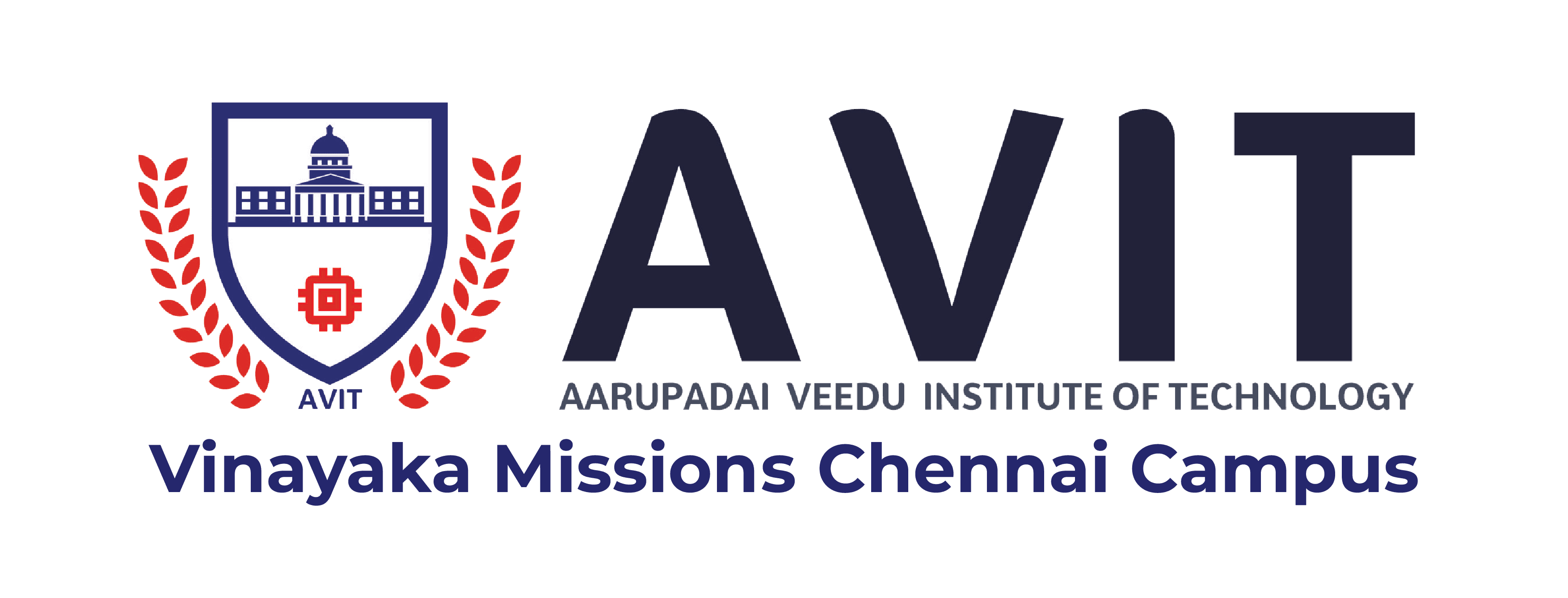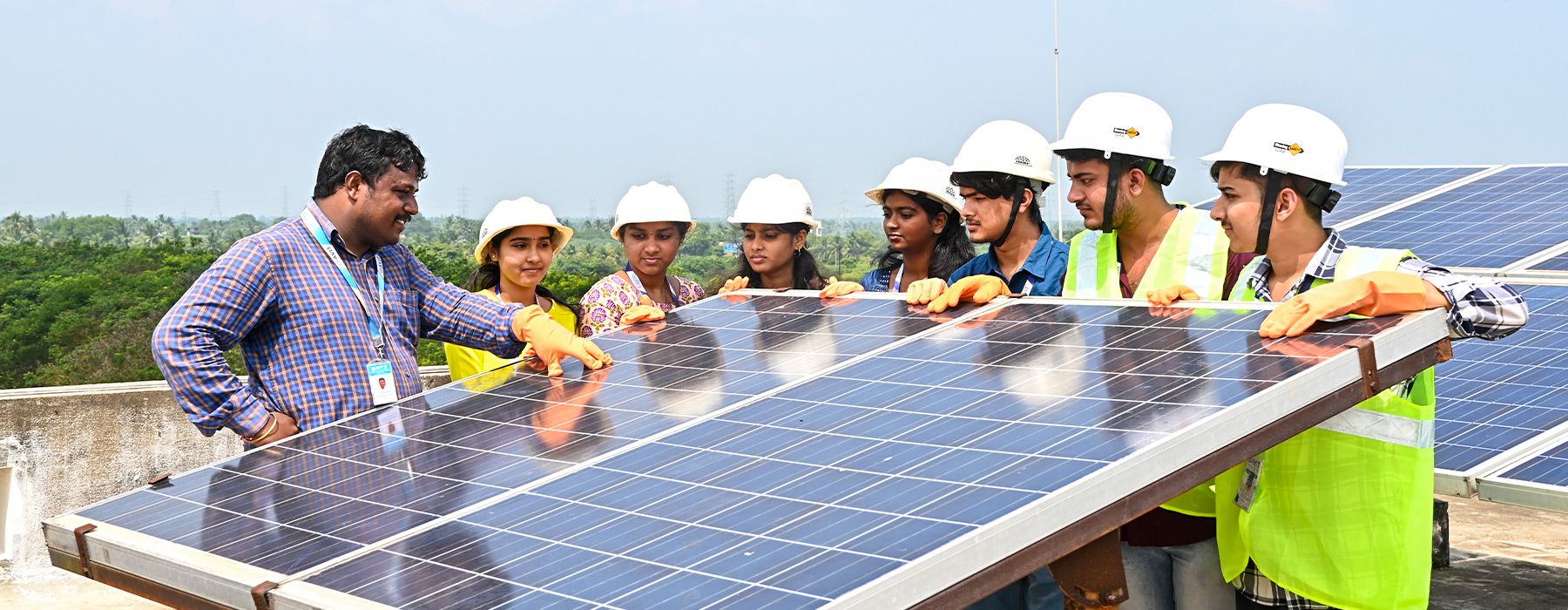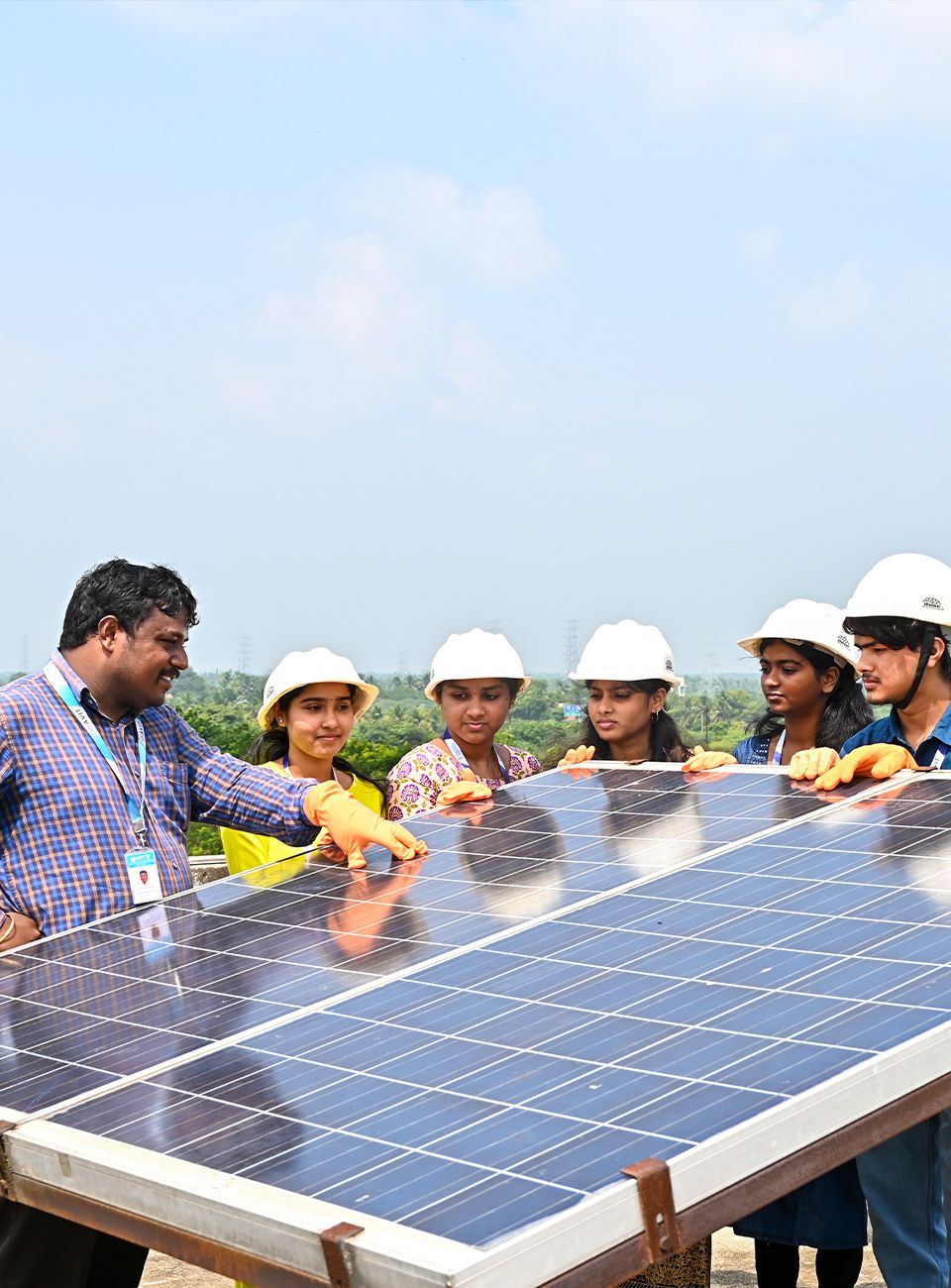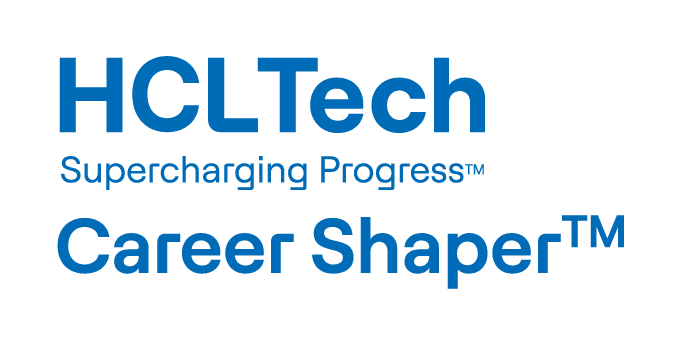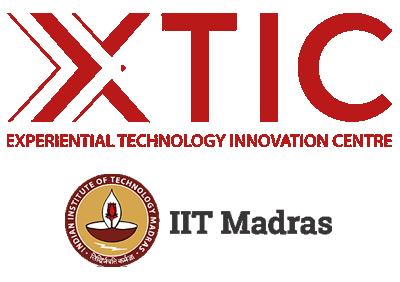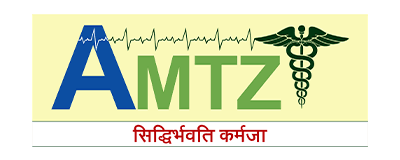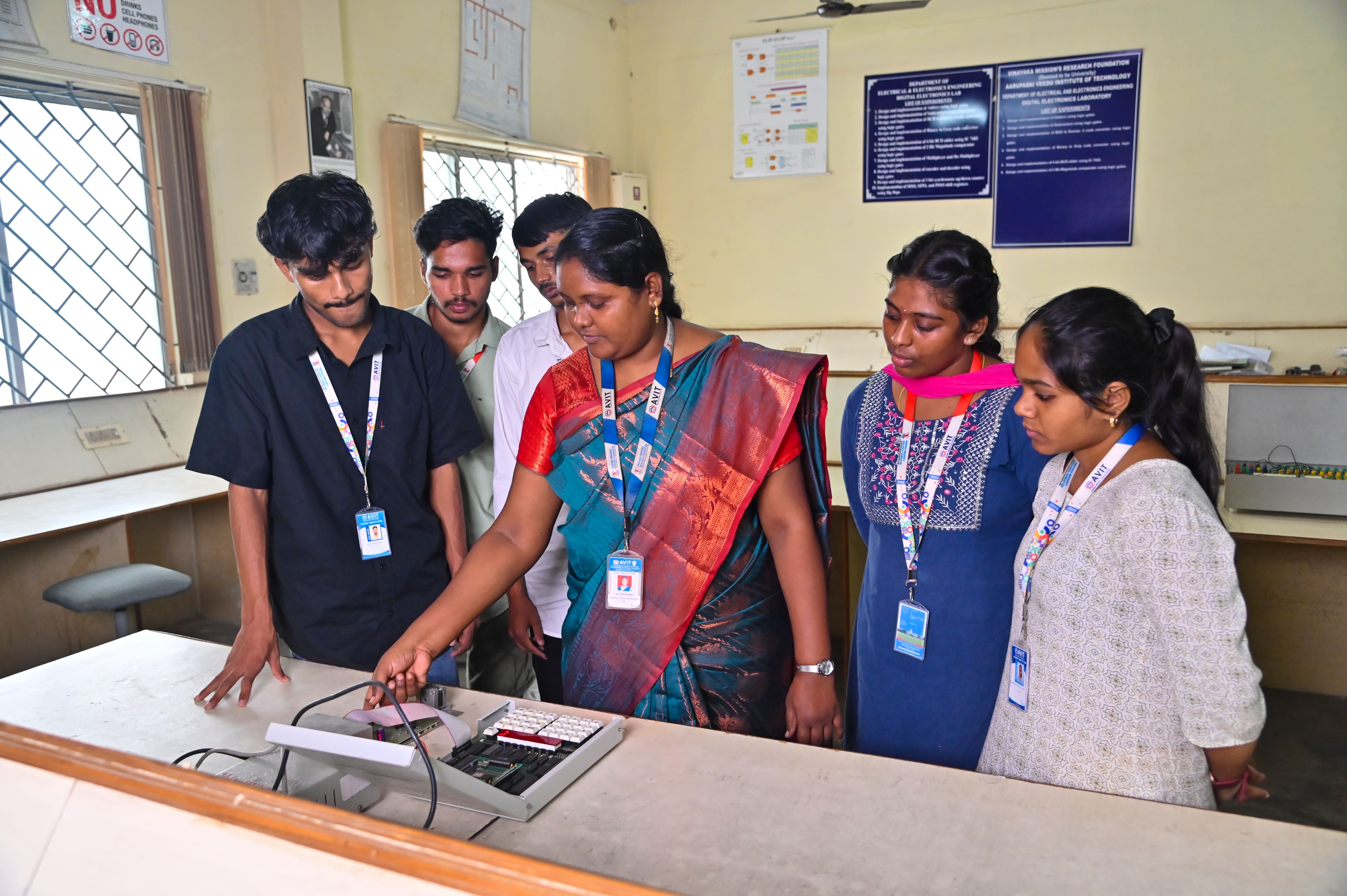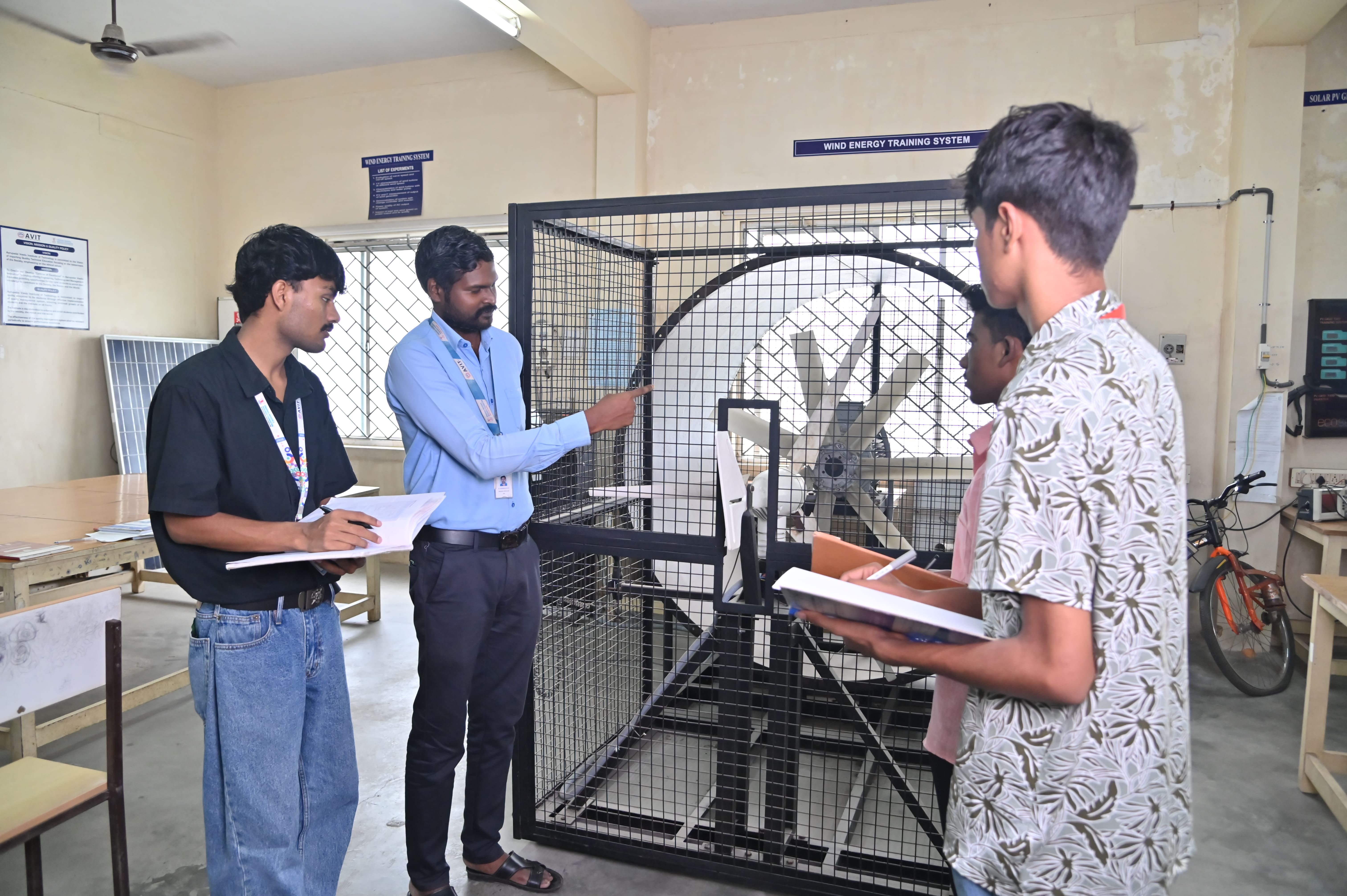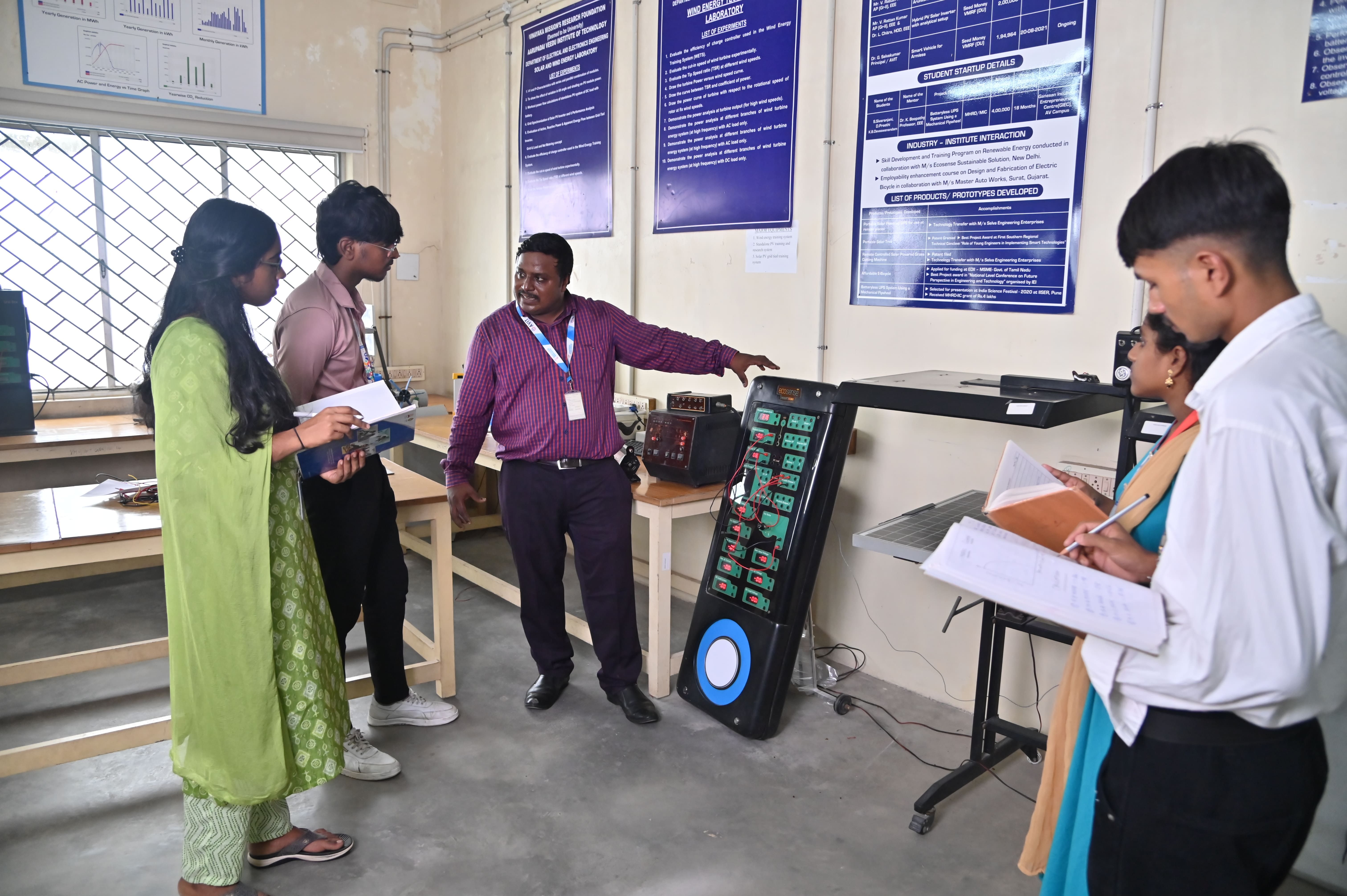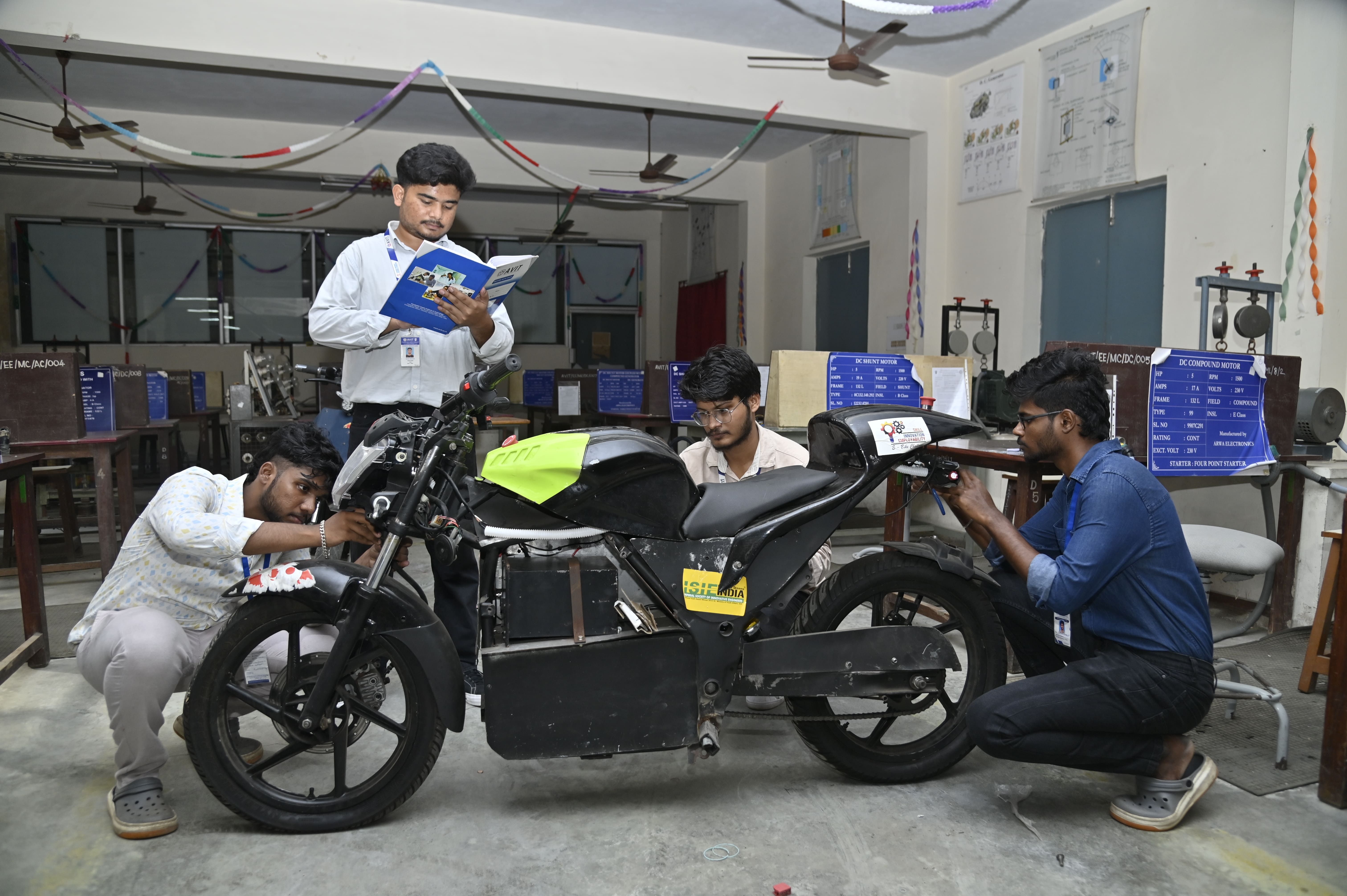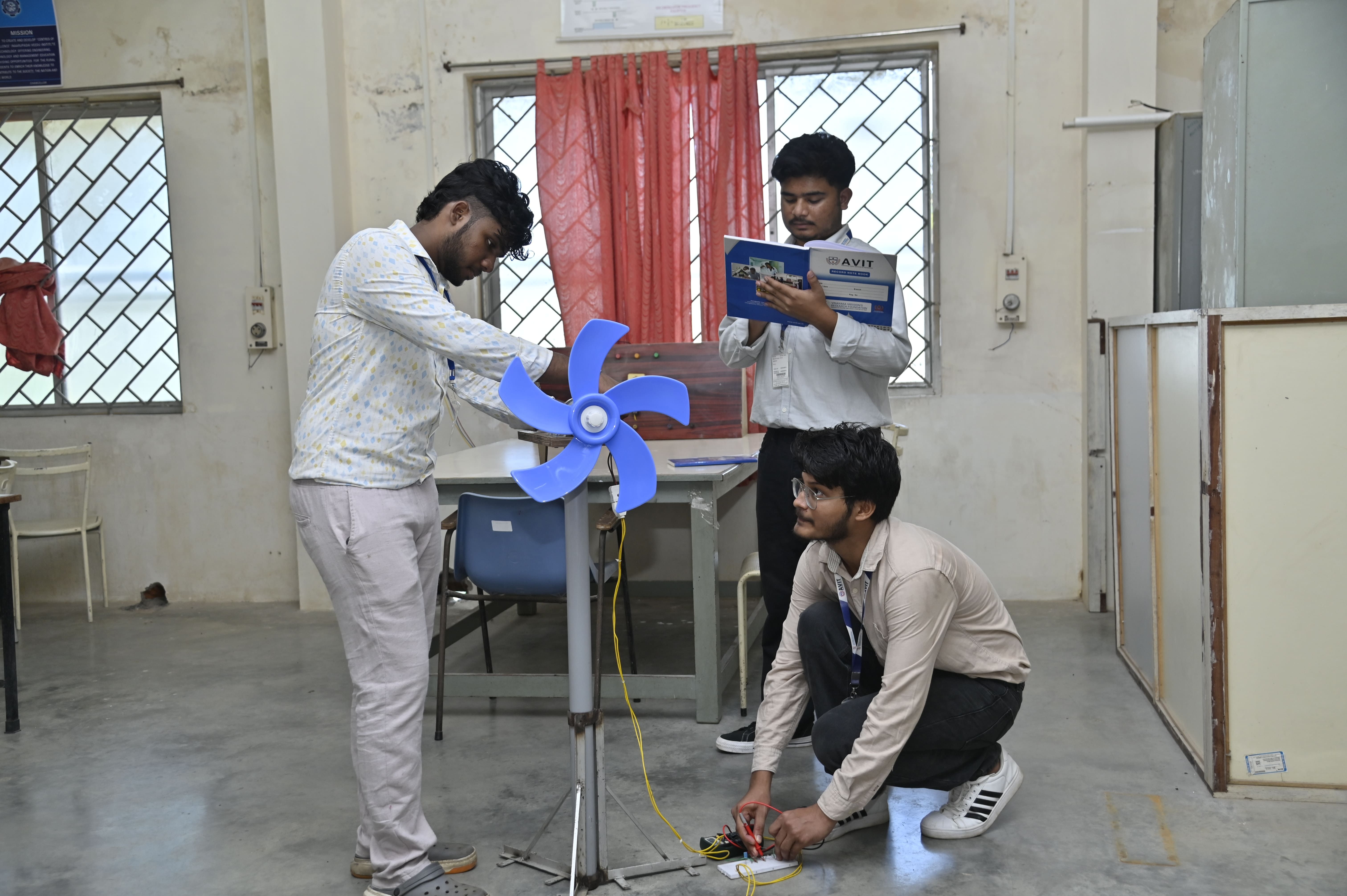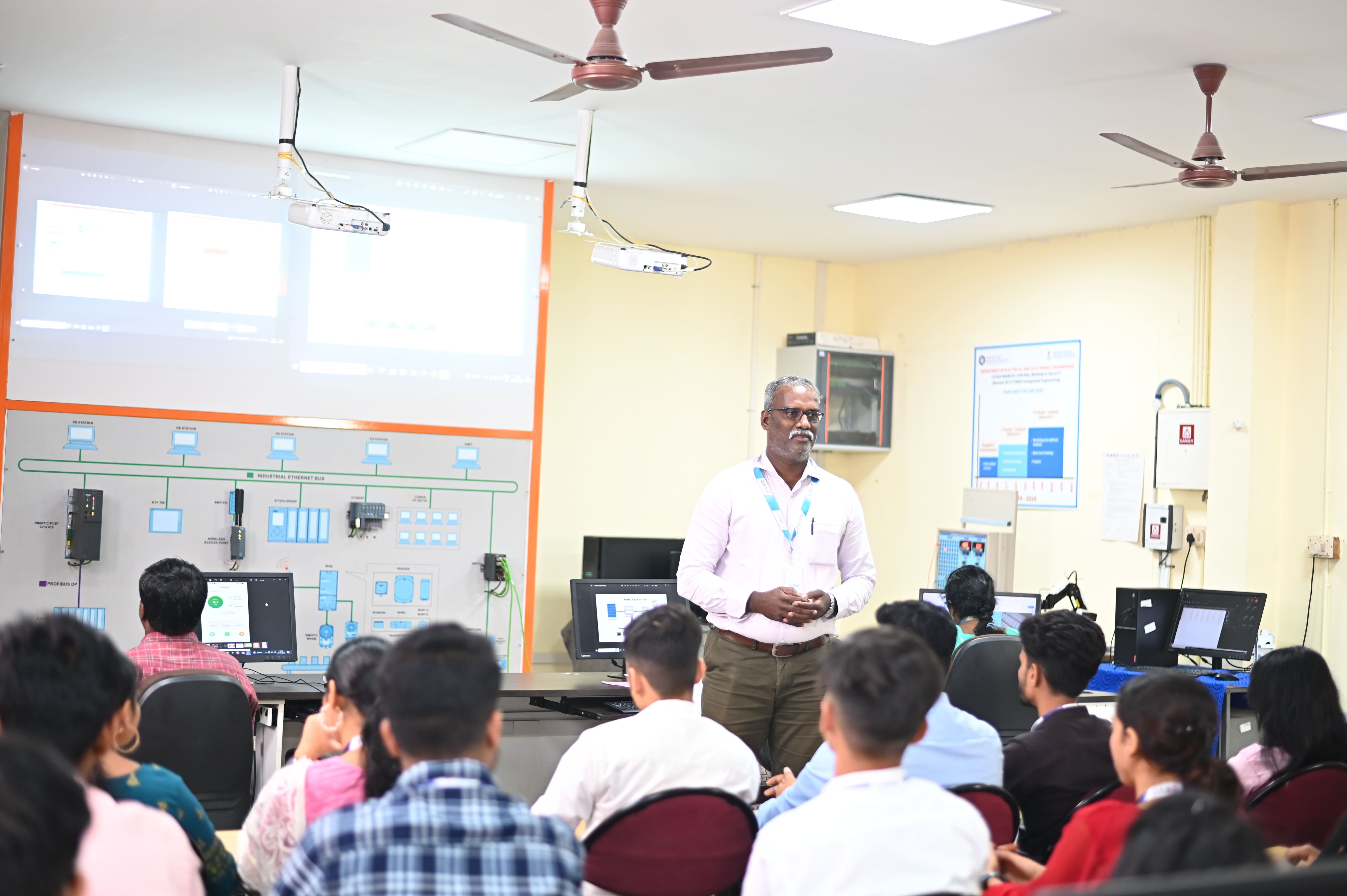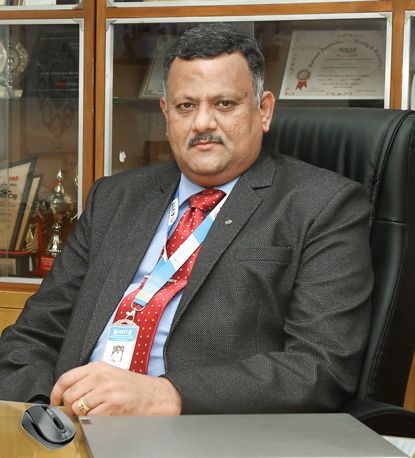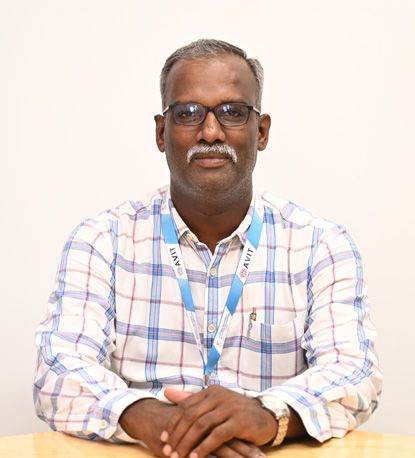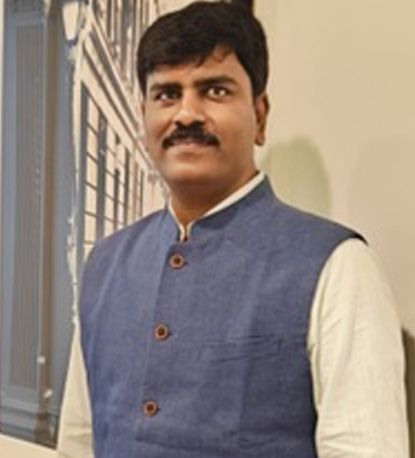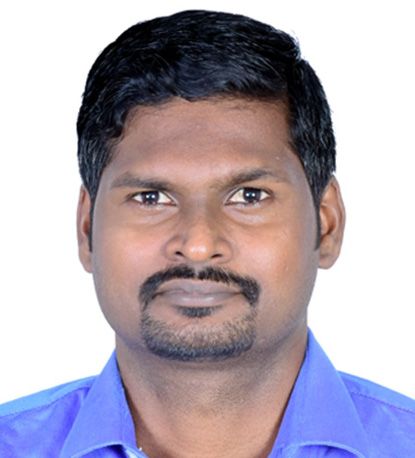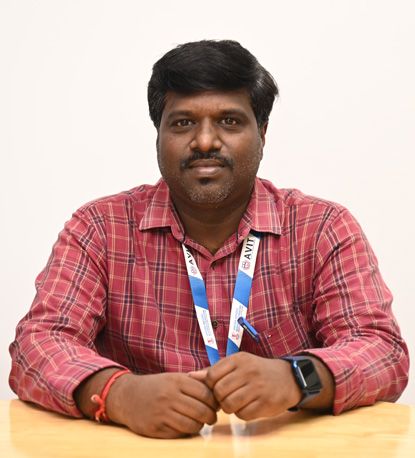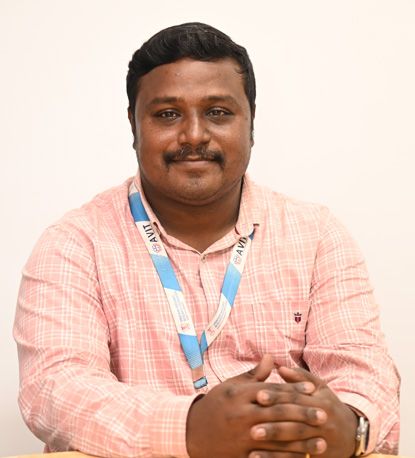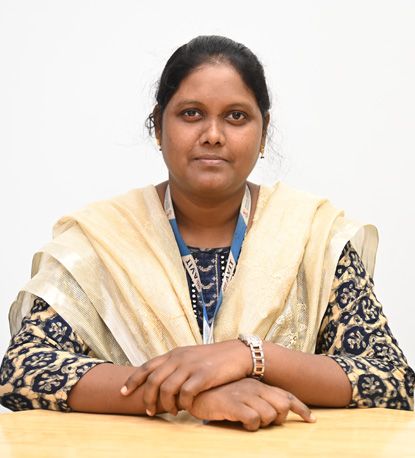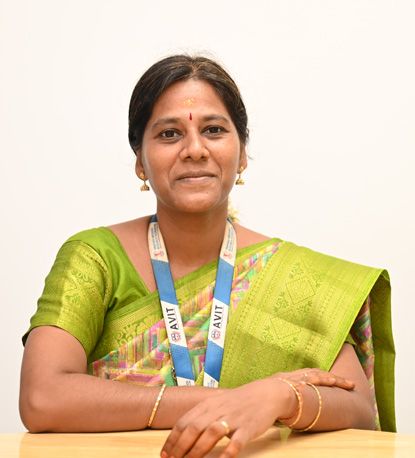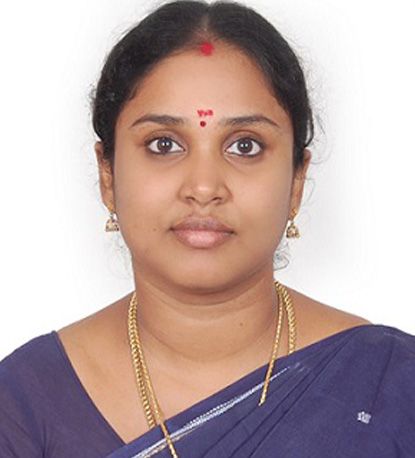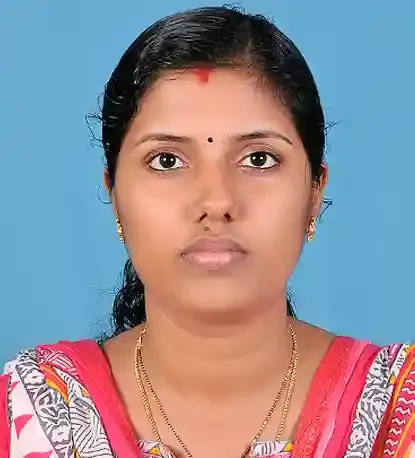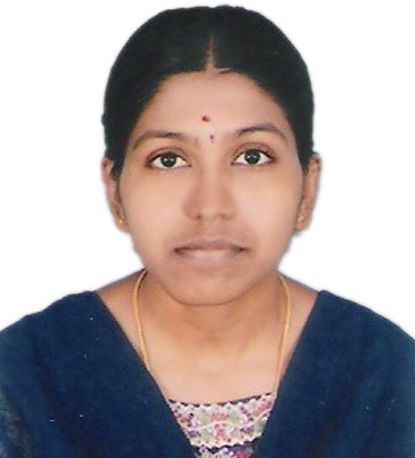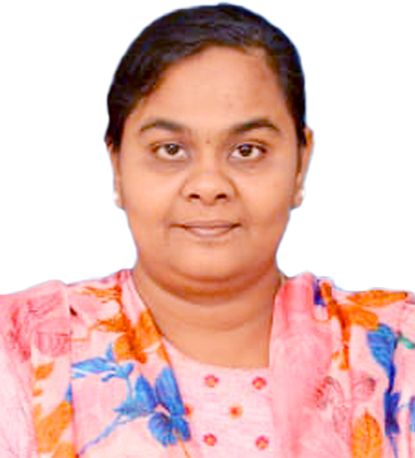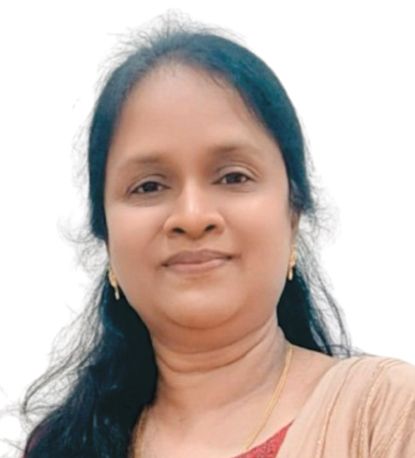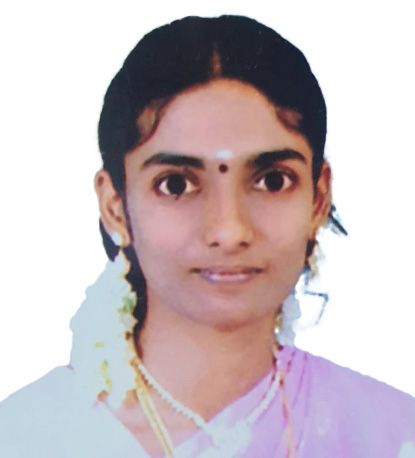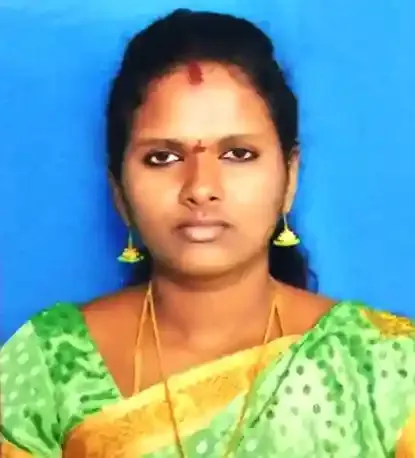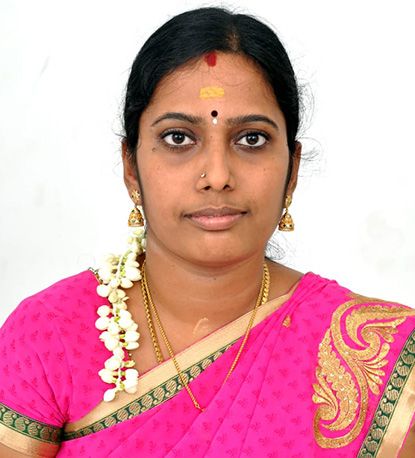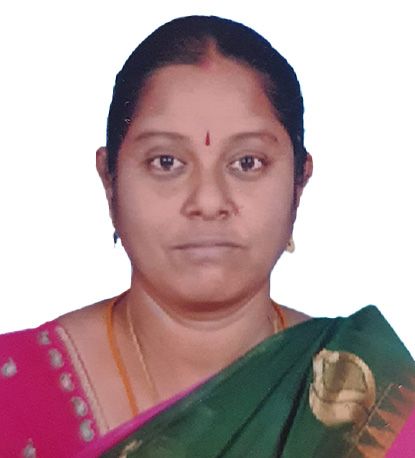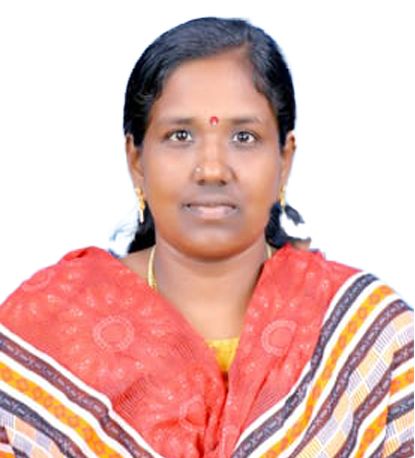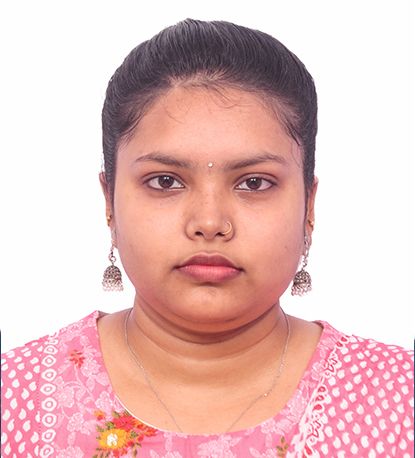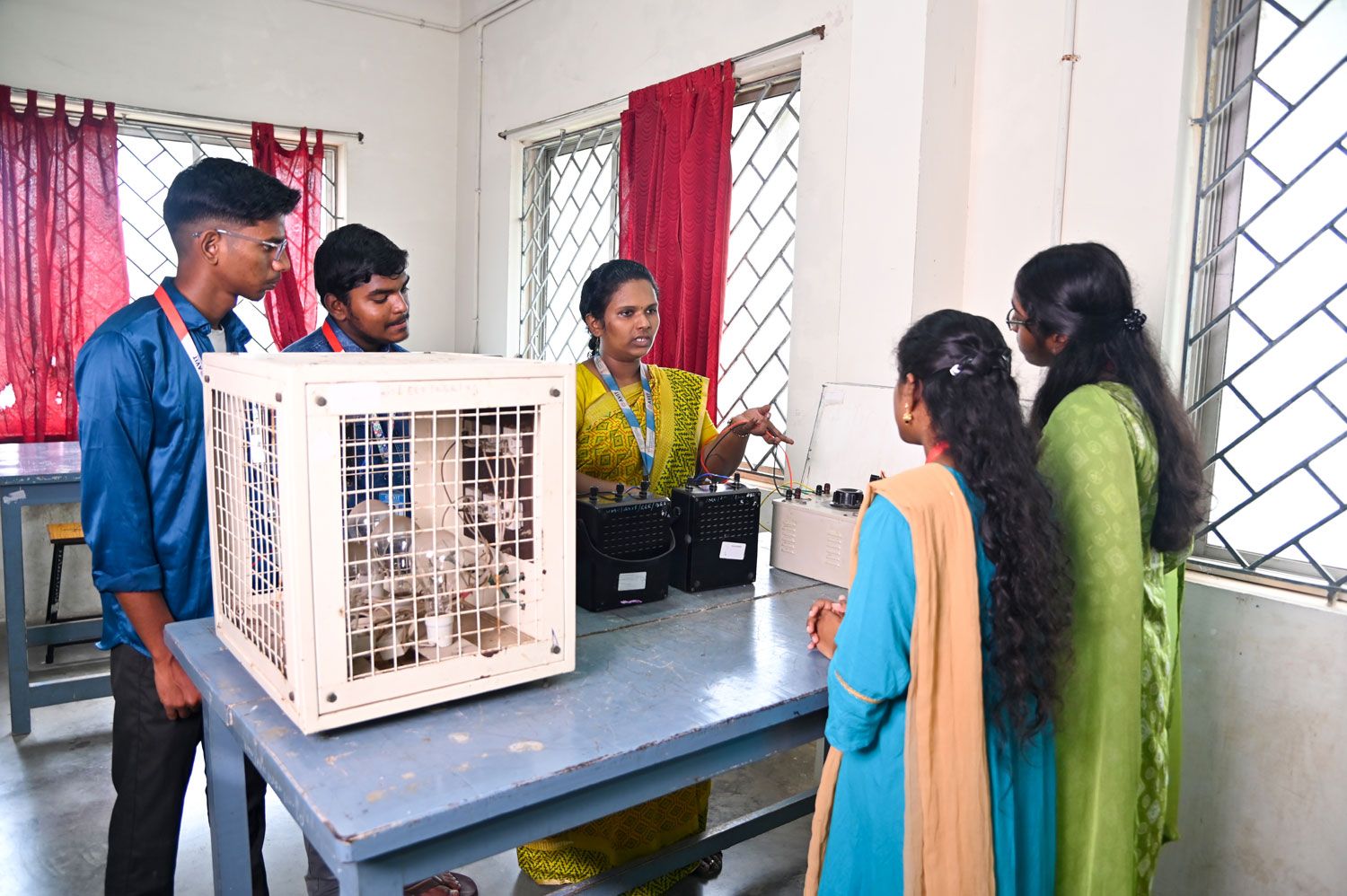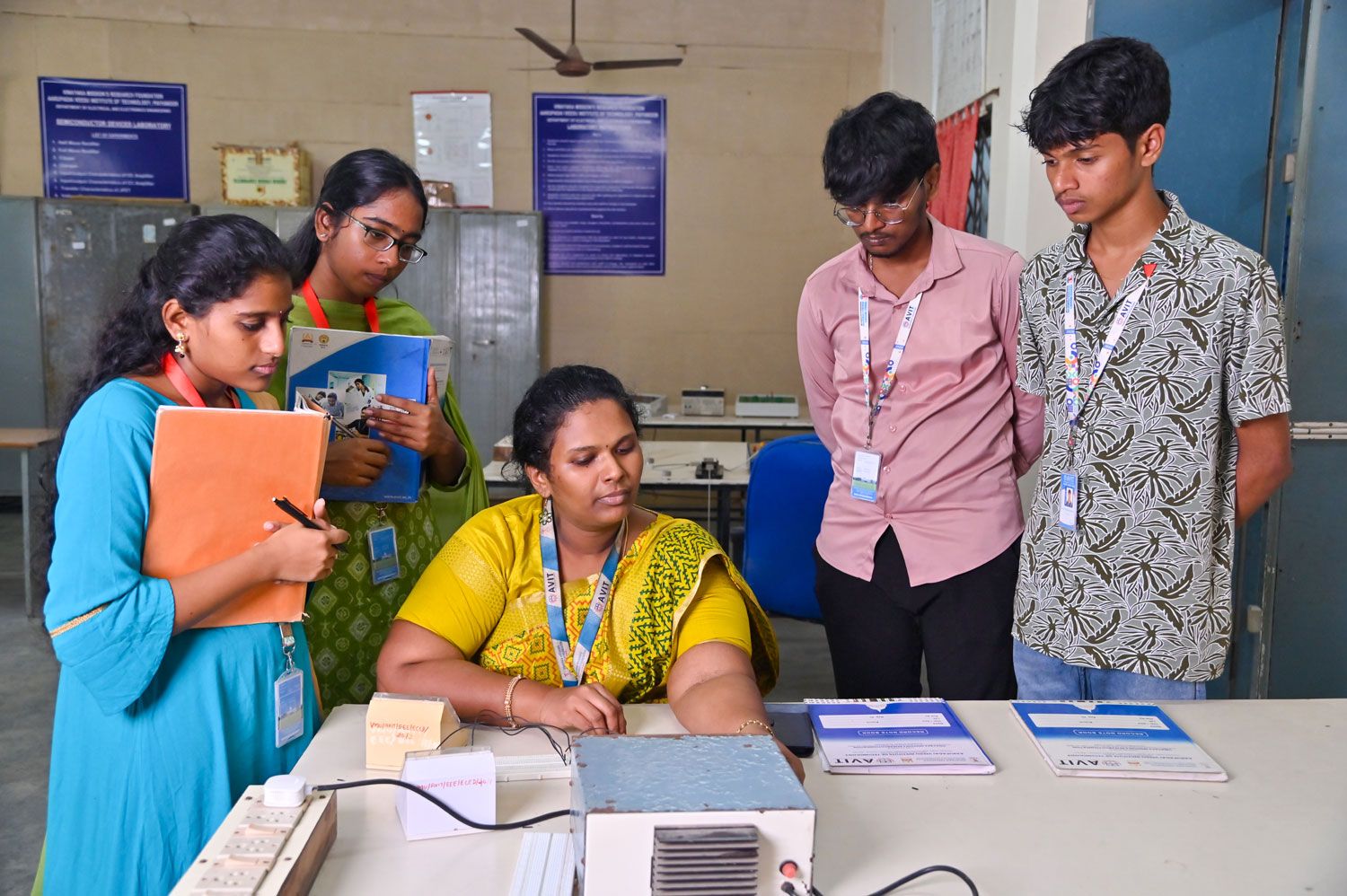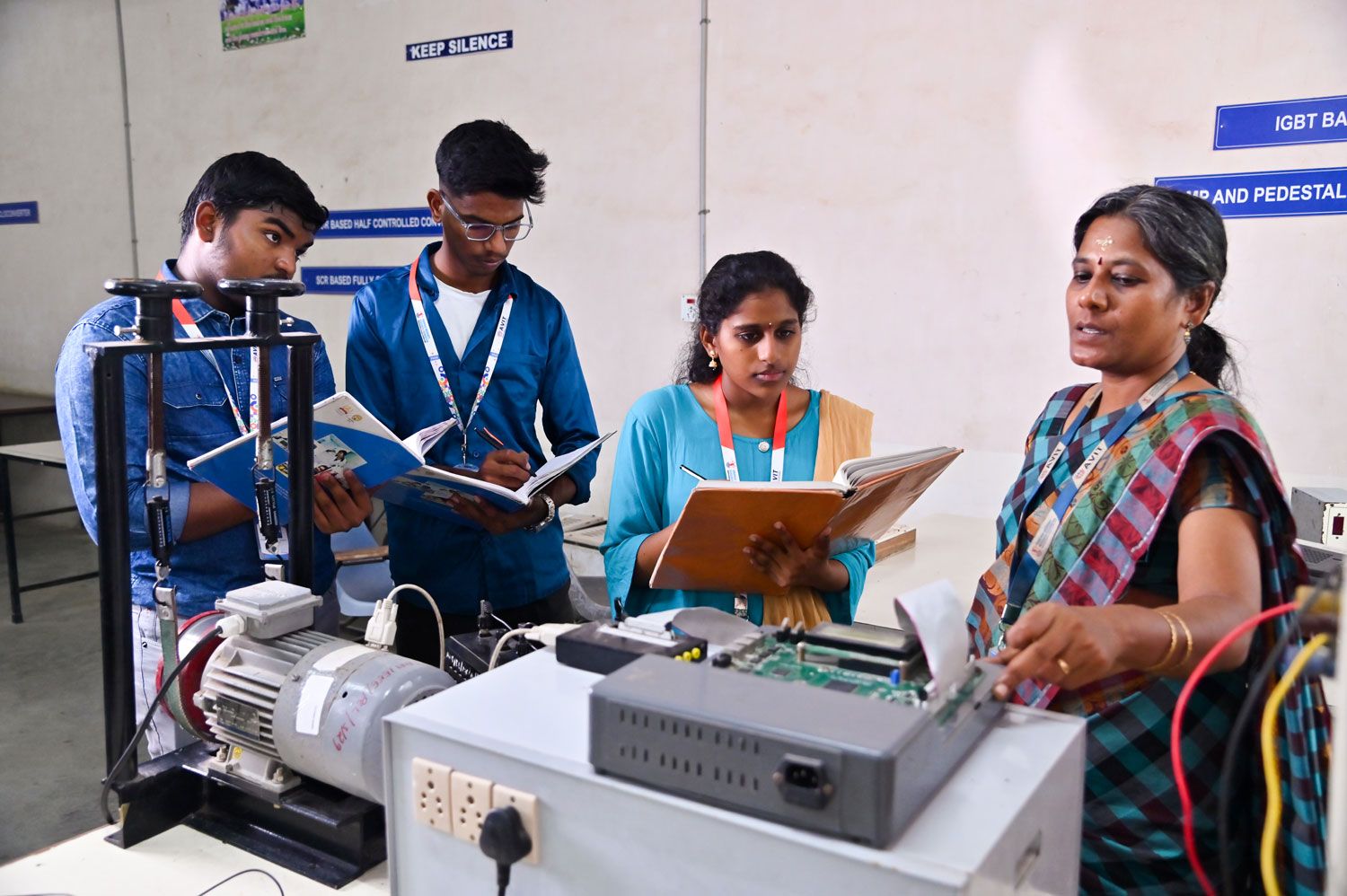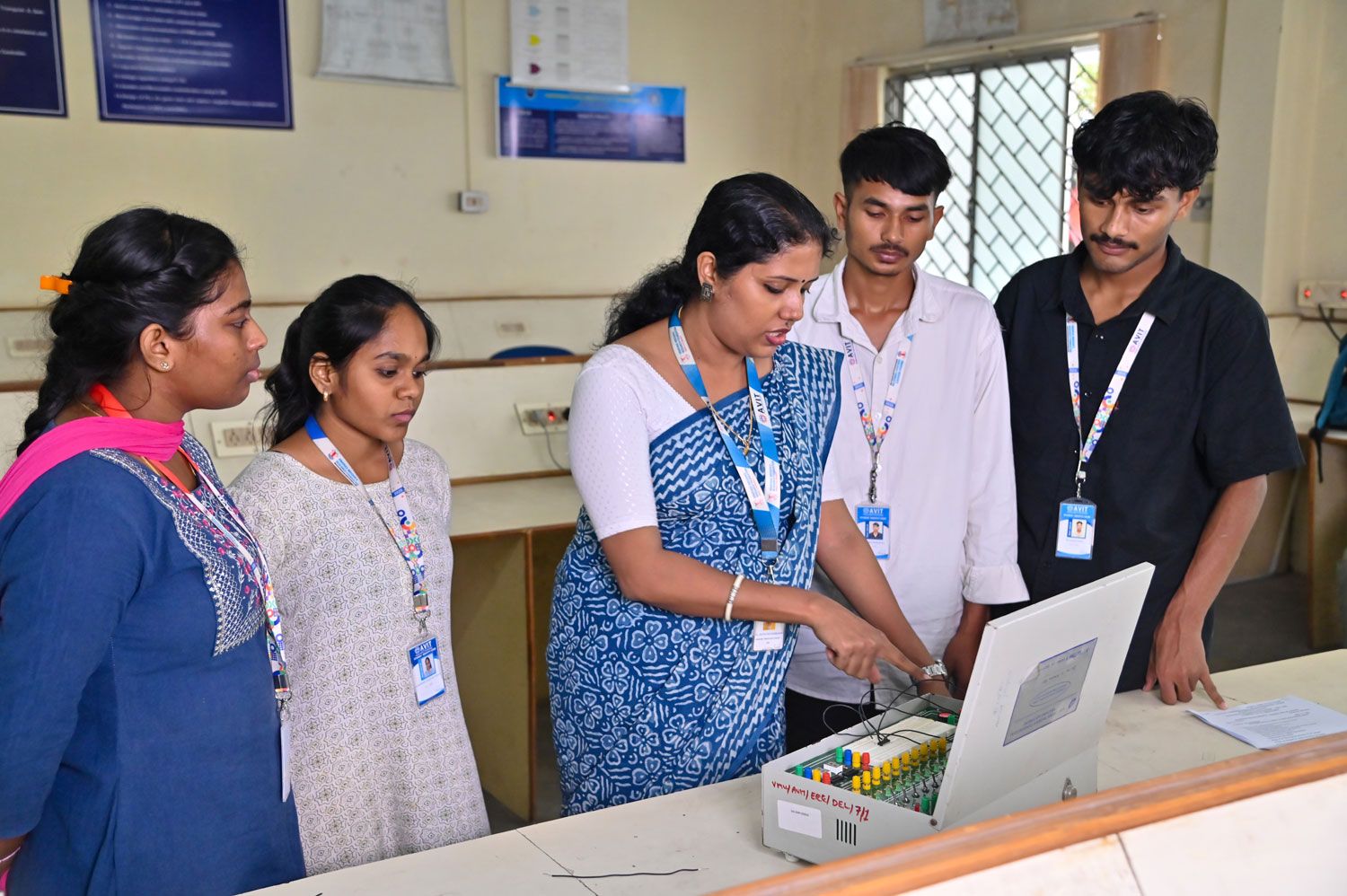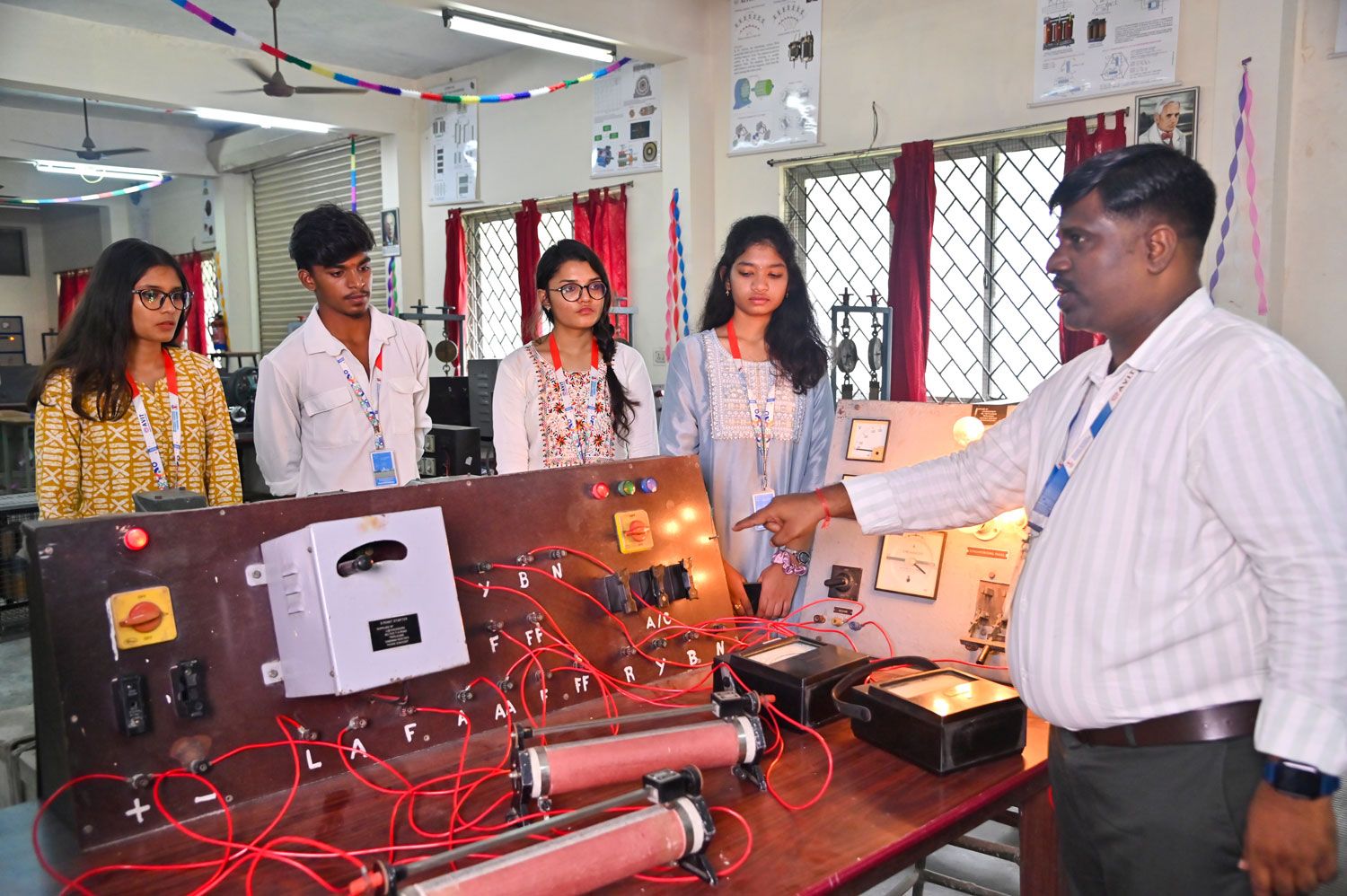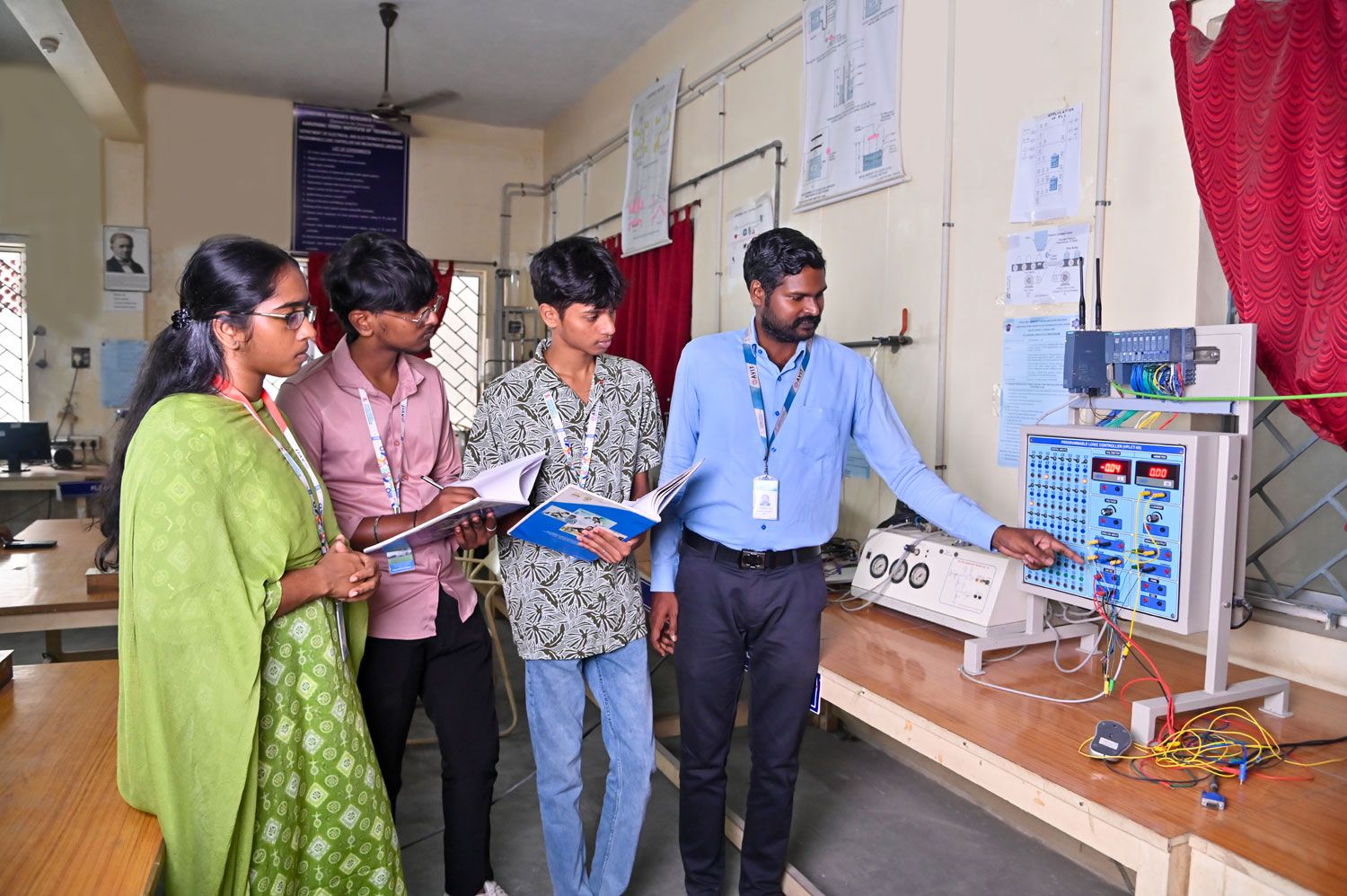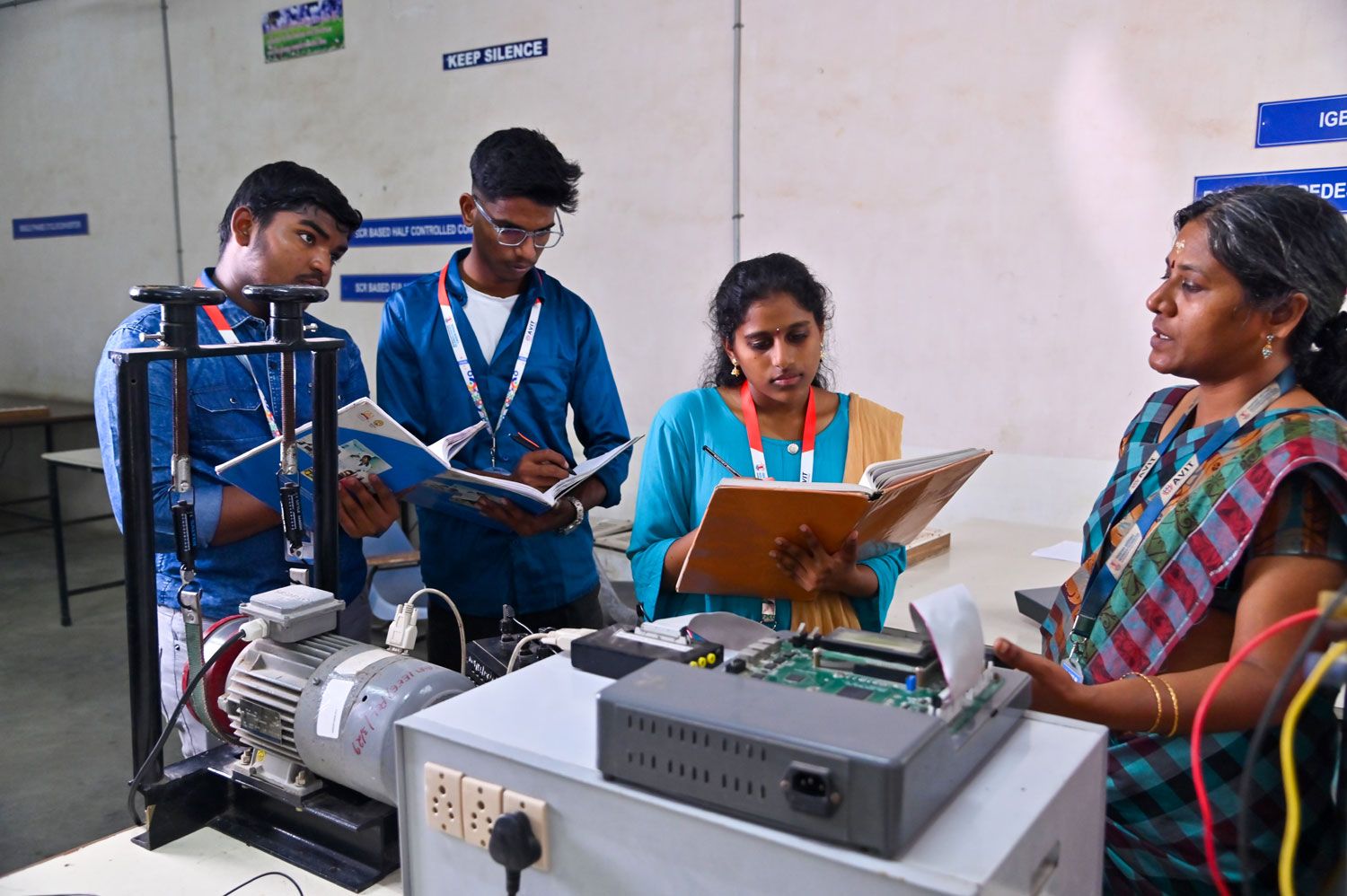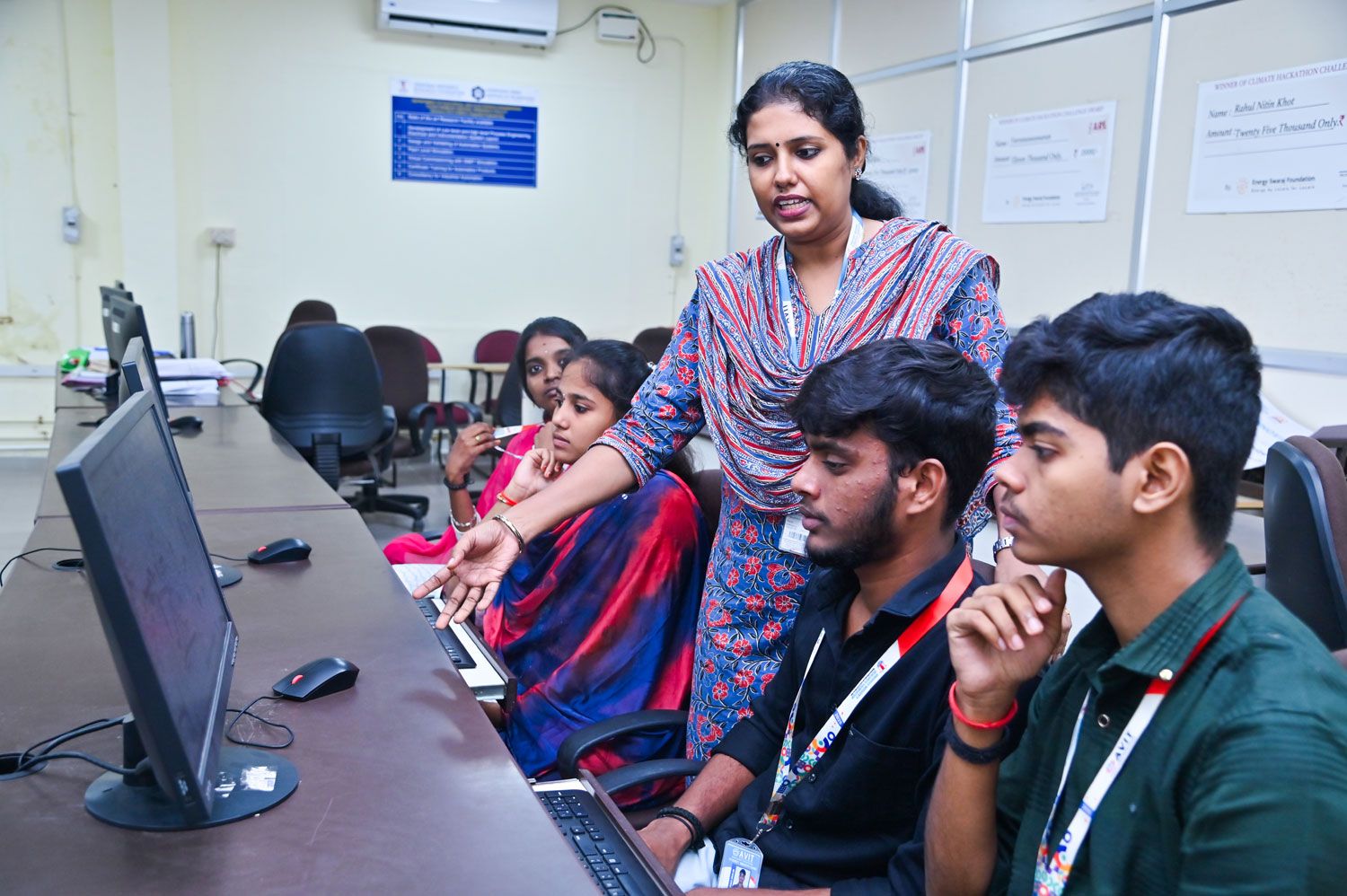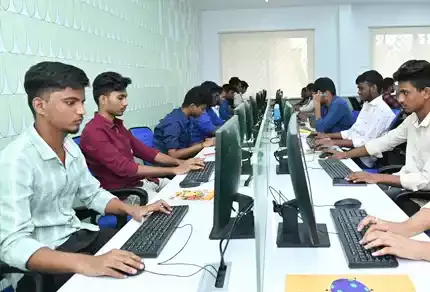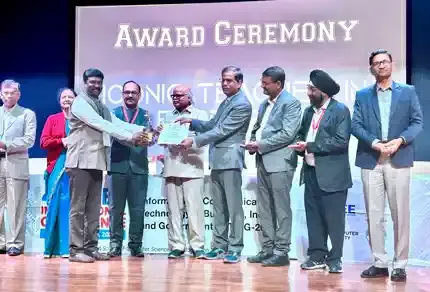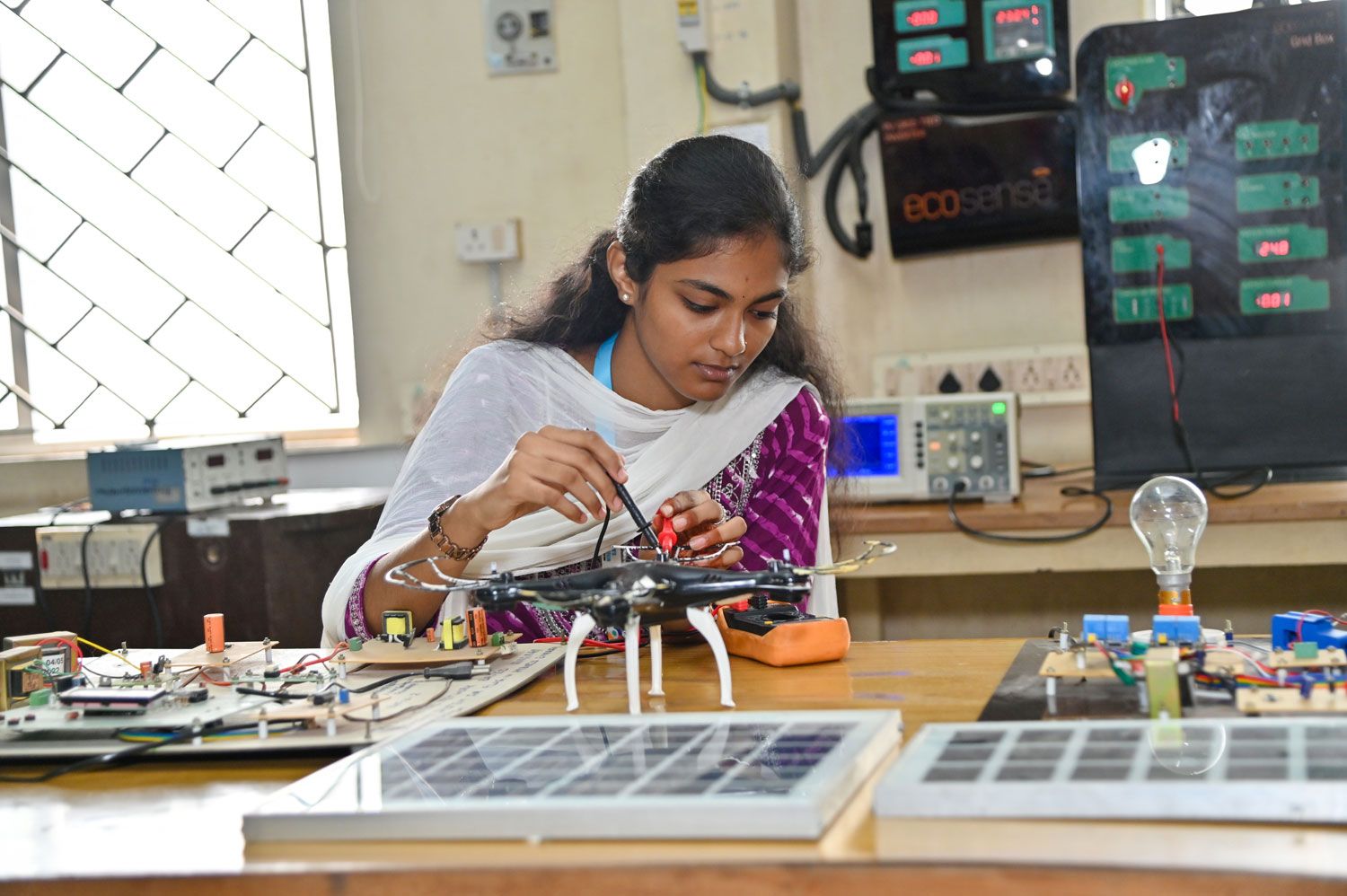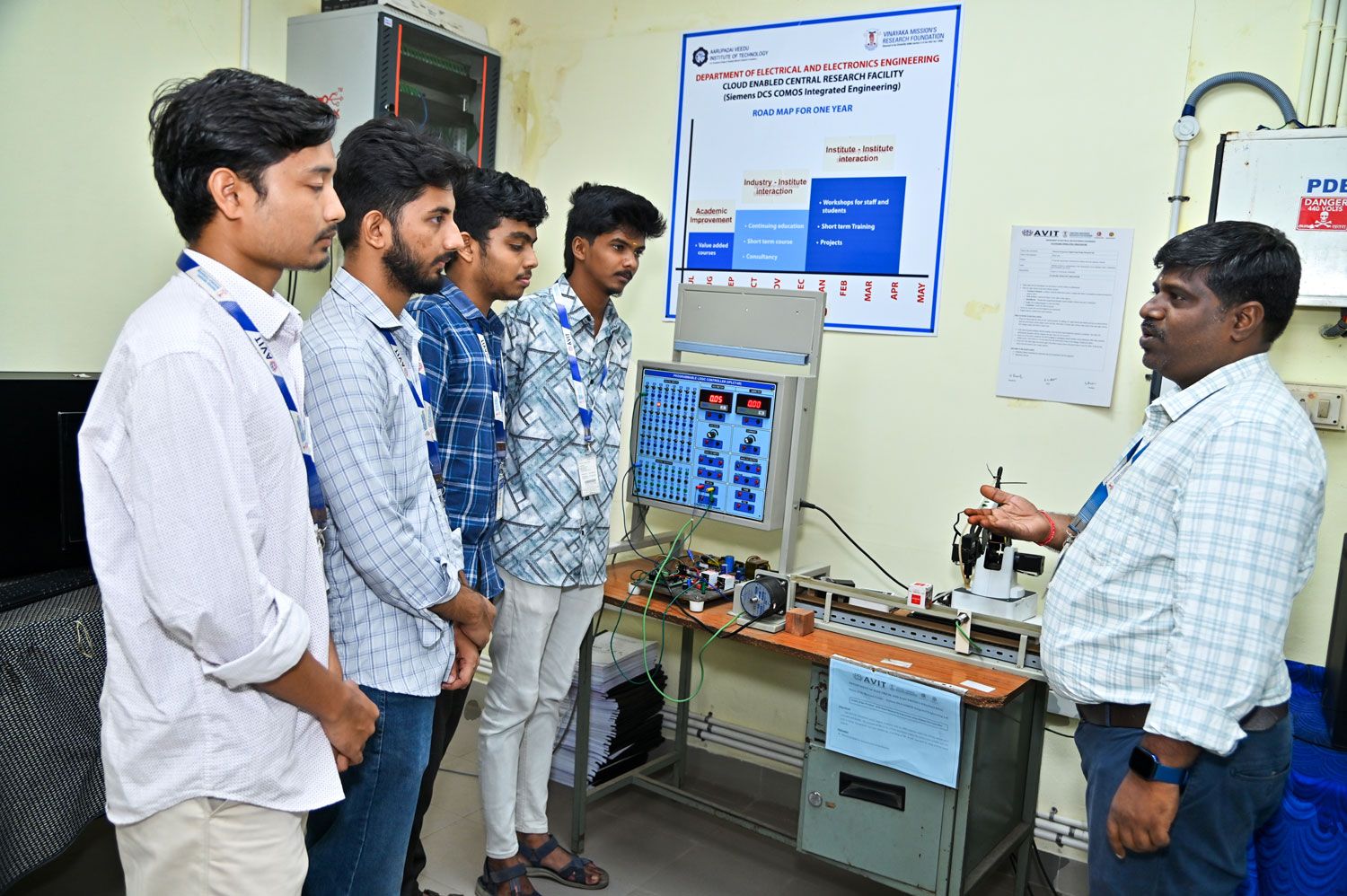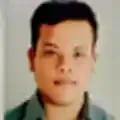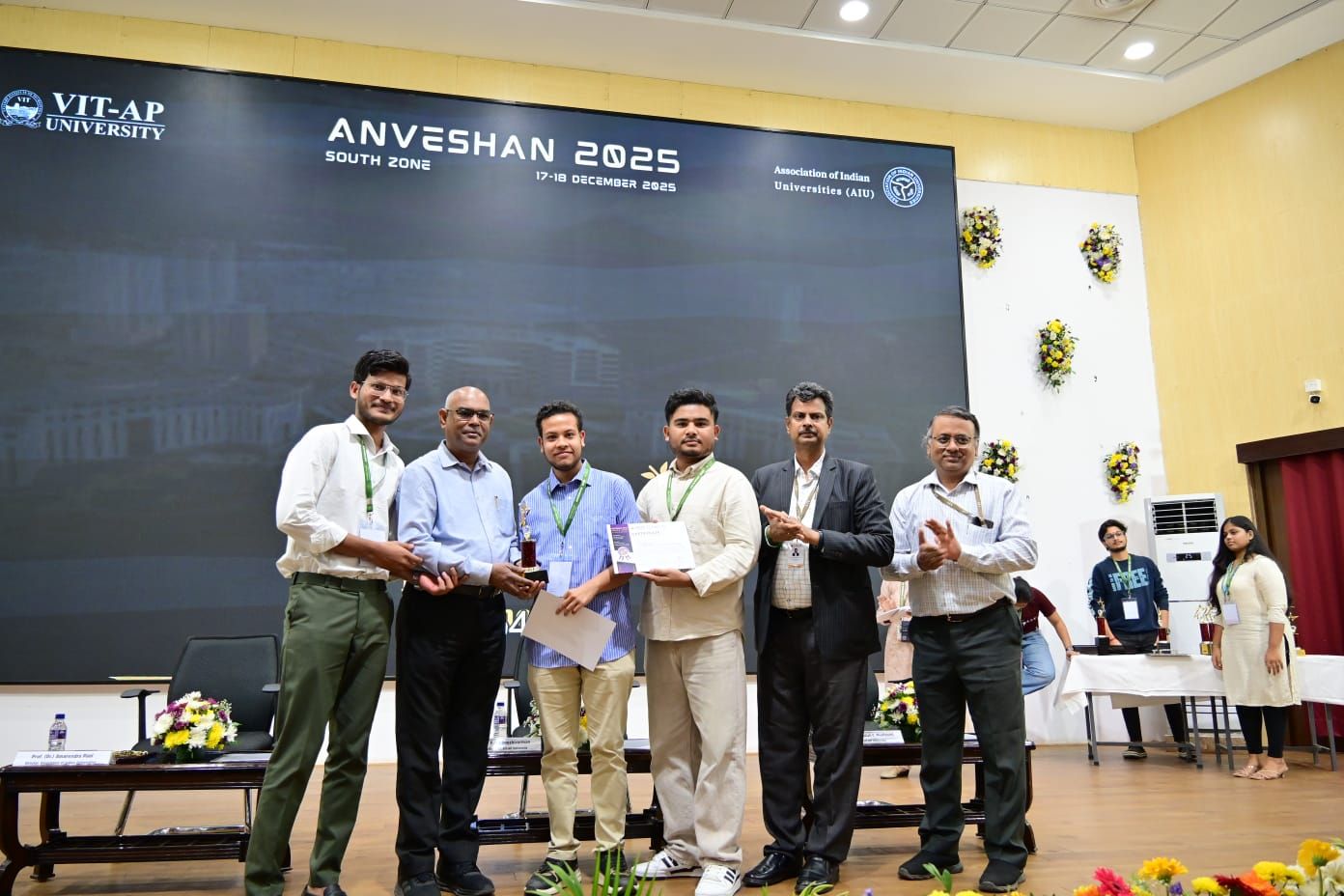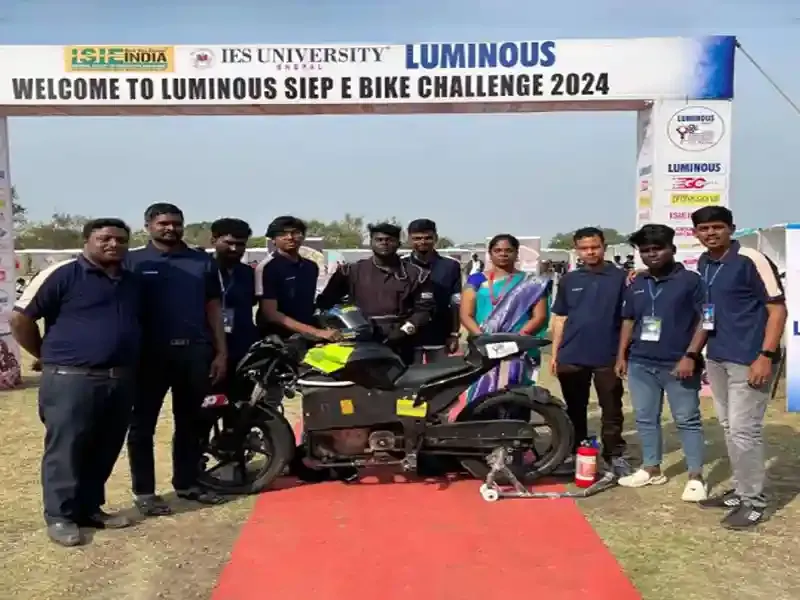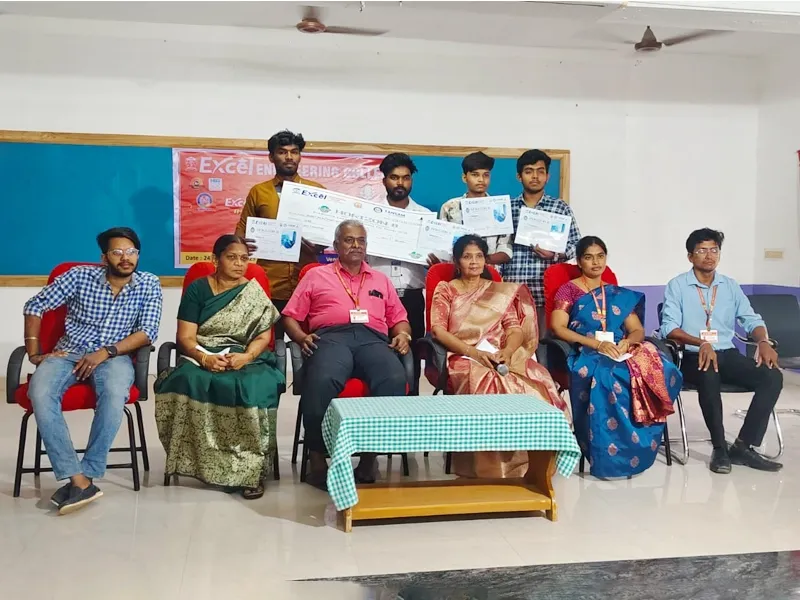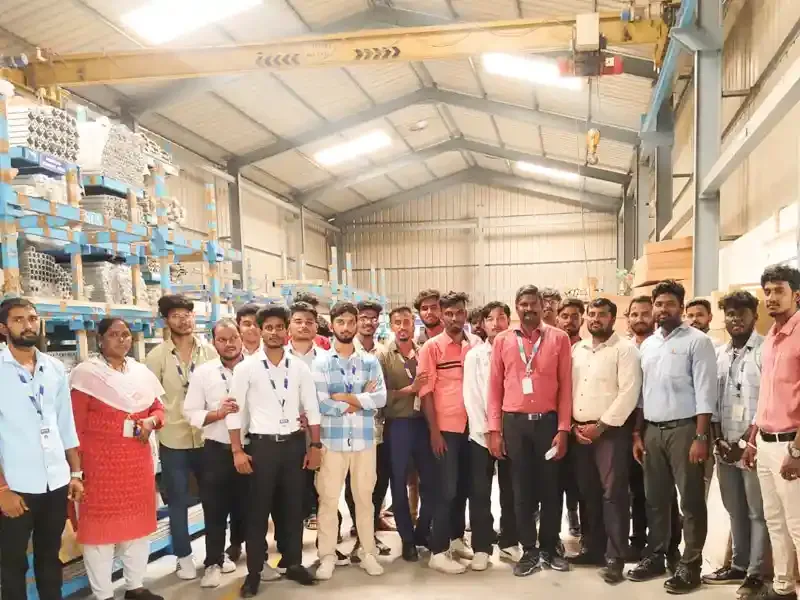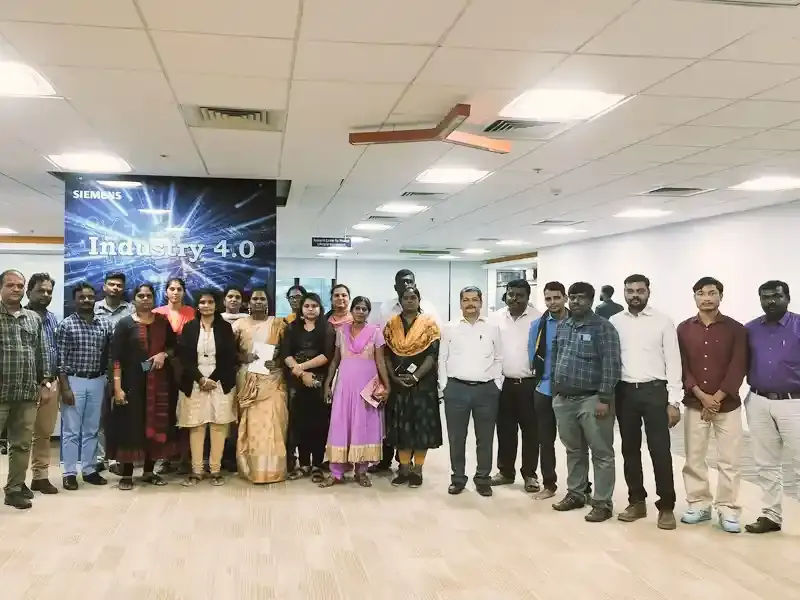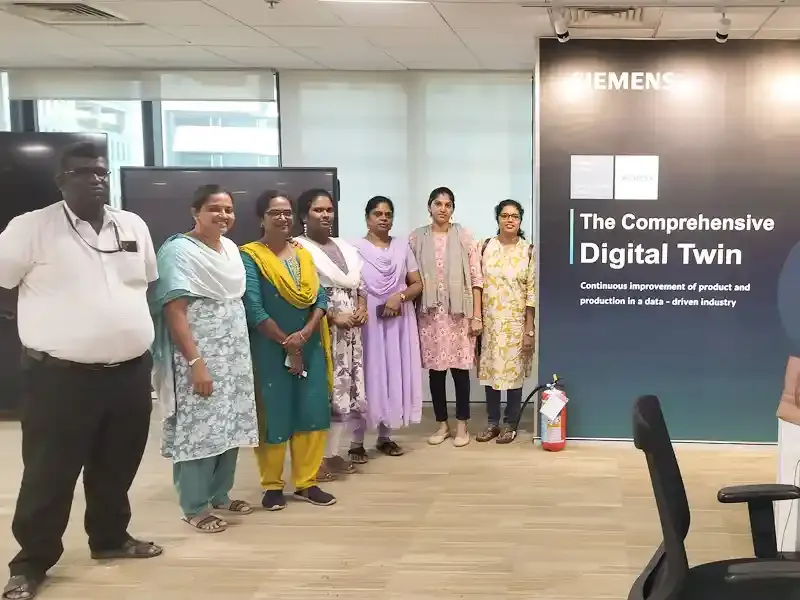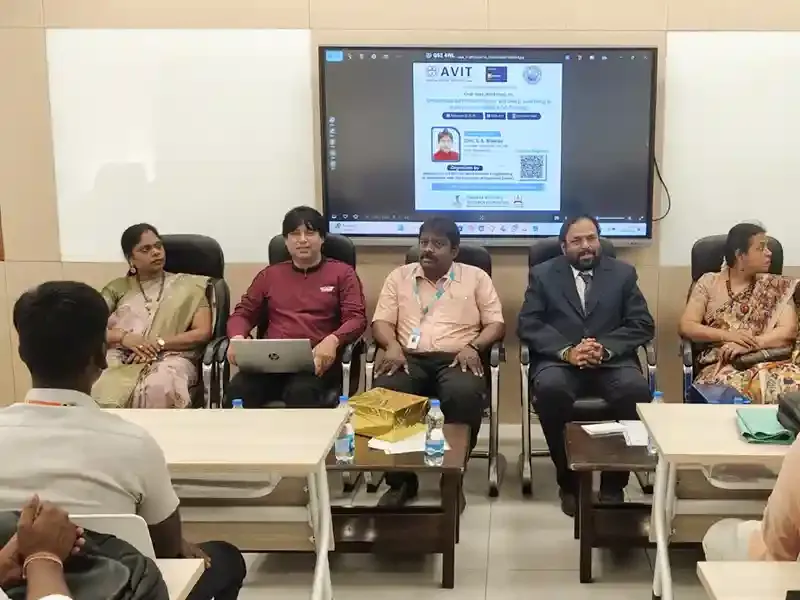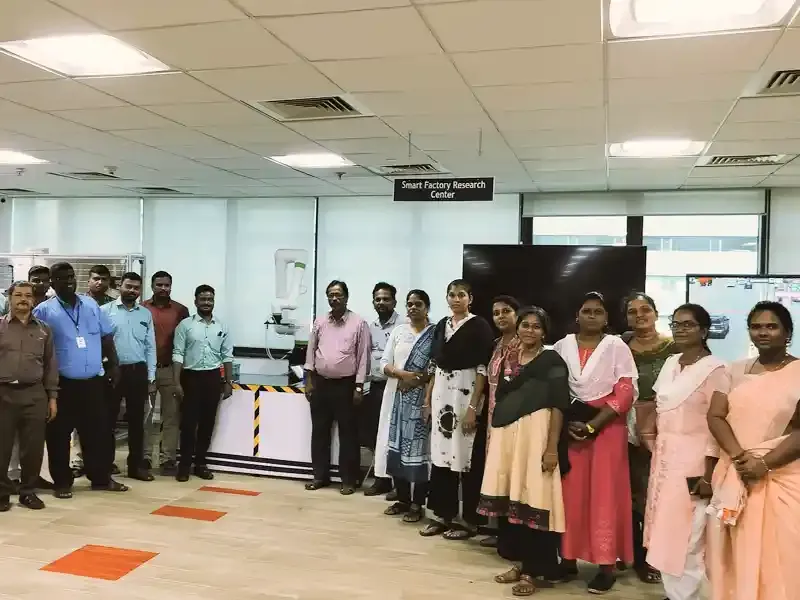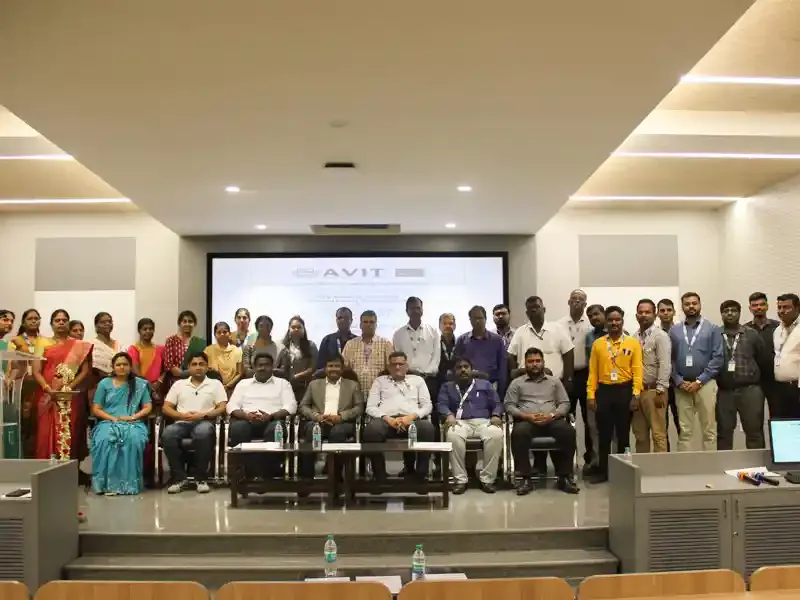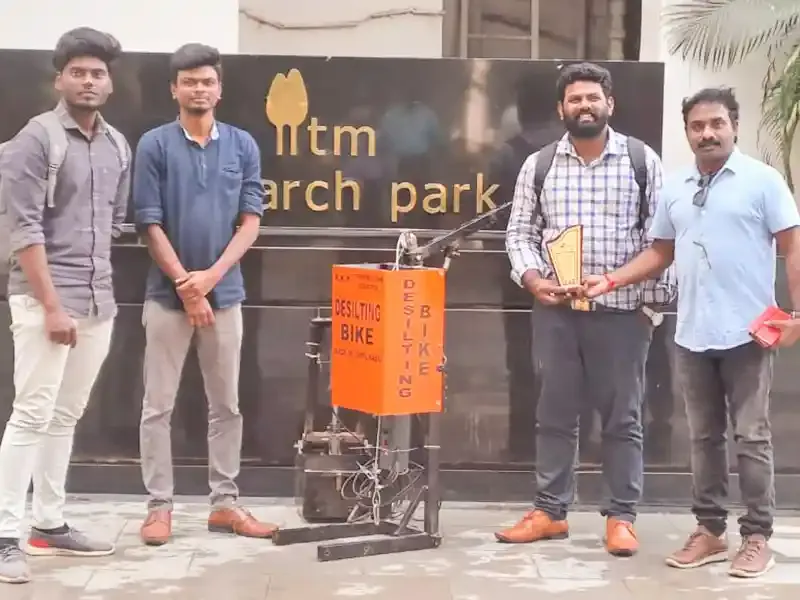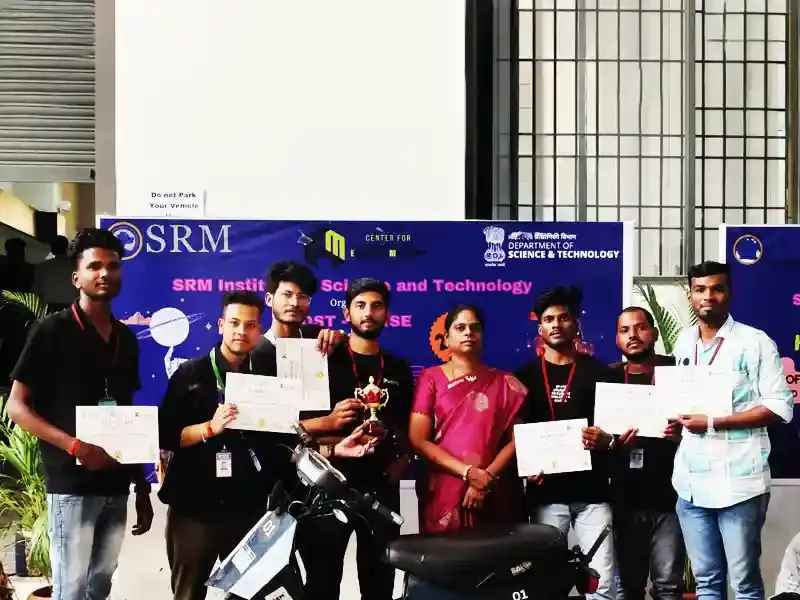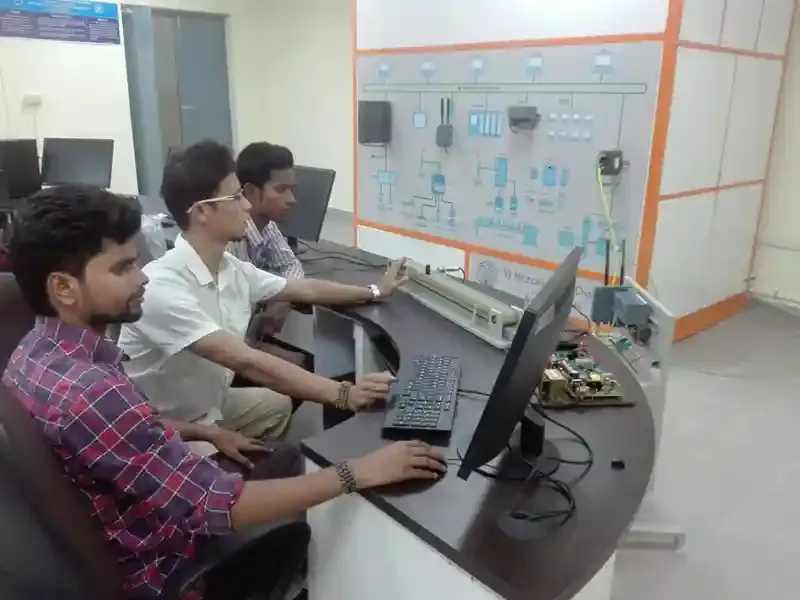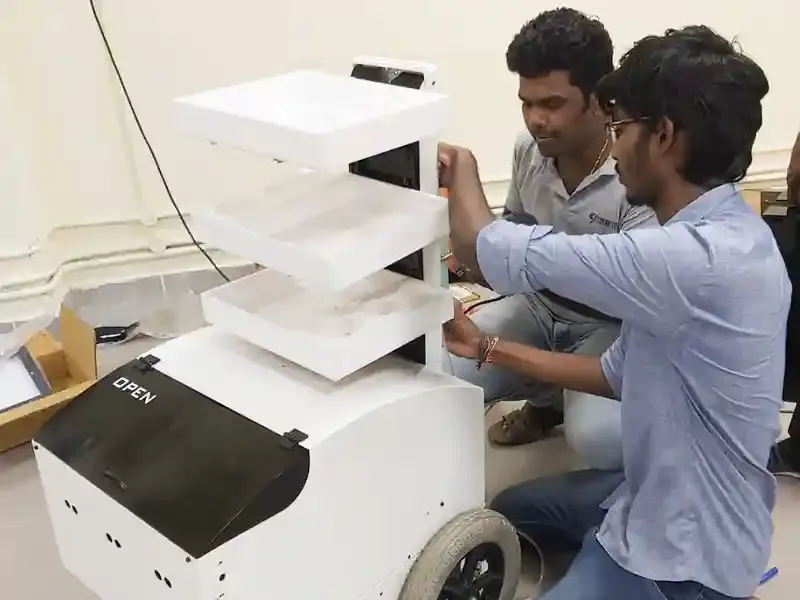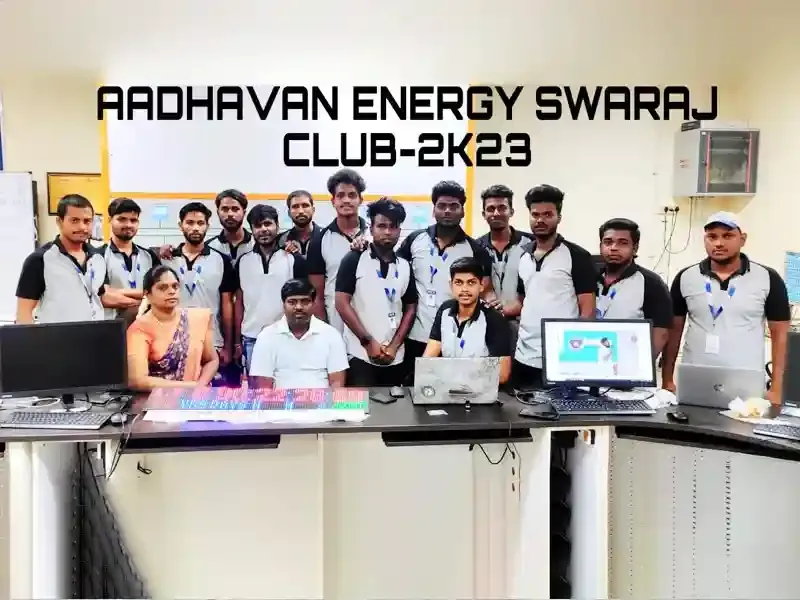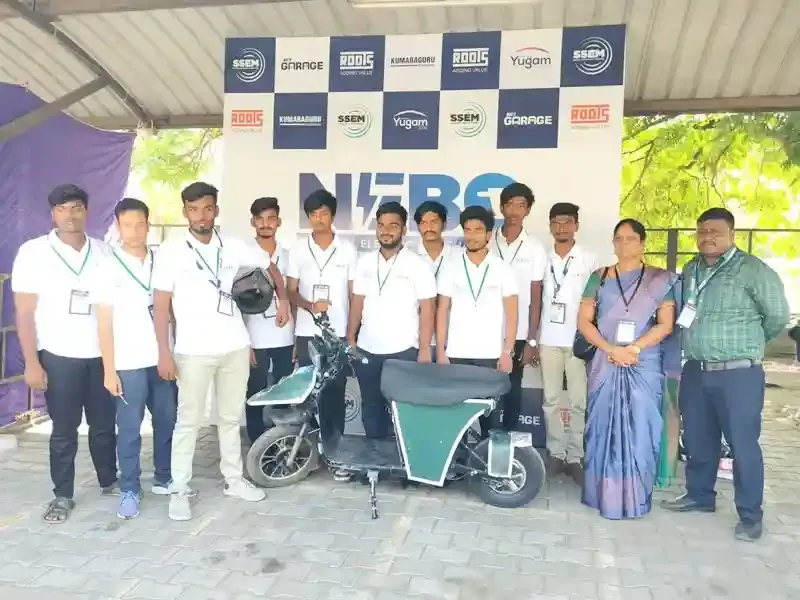Department of Electrical and Electronics Engineering
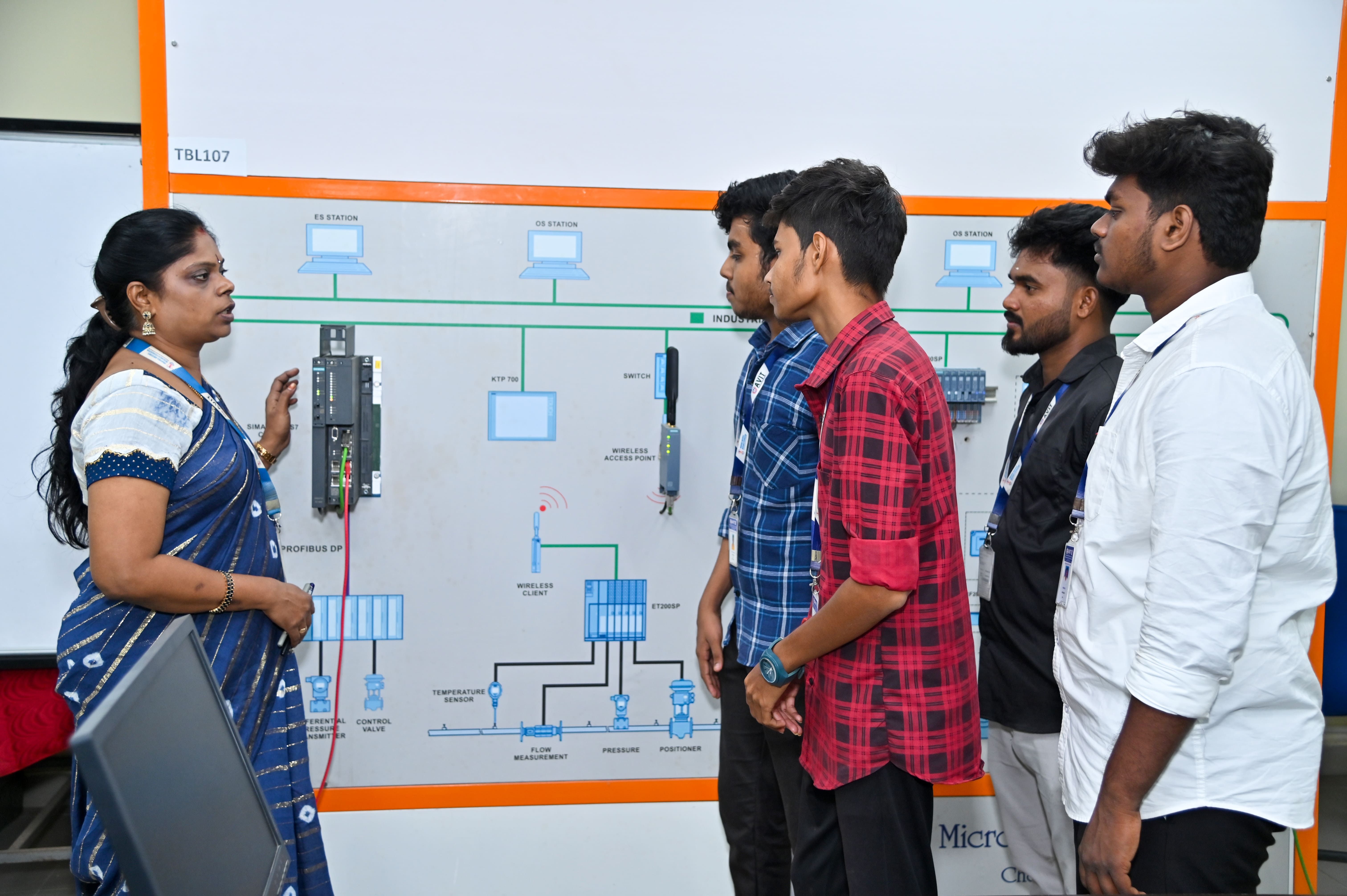
Department Overview
The Department of Electrical and Electronics Engineering, established in 1998, offers undergraduate programmes focused on Renewable Energy, Power Electronics, and Power System Automation. Featuring advanced labs, the EEE department also houses a Centre of Excellence for Solar Energy, managing a 126 kWp solar plant that generates 600 units daily. Collaborations with leading firms enable hands-on projects and in-plant training, while grants from MNRE, DST, MHRD, and IIT Hyderabad support research. Students have excelled in national events, winning awards at Innovation Challenges 2K24, Shaastra Tech Fair 2023, and Project Expo 23. Their achievements showcase the department’s commitment to innovation and excellence.
Mission & Vision
Building a Future of Excellence Through Purpose and Direction
Our Mission
- To develop human resource to pursue cutting-edge and futuristic research in energy technologies
- To develop trained human resource to cater the needs of existing and emerging renewable energy industries
- To become the nodal center to deliver consultancy and offer expertise to industries, governmental organization and entrepreneurs
- To emerge as hub for technology development, incubation and validation
Our Vision
- To carry out research and development in niche area of alternative and renewable energy technologies and contribute to the energy self-sufficiency
Dr. L. Chitra
Professor and Head
As the Head of Department, I am proud of our long-standing commitment to excellence in education and research. Our department, established in 1998, offers cutting-edge programmes in Renewable Energy, Power Electronics, and Automation, supported by state-of-the-art facilities and a dedicated faculty. We focus on nurturing innovation, with numerous opportunities for students to engage in national and international projects and competitions. Our department’s continuous growth reflects our dedication to shaping skilled engineers capable of contributing significantly to technological advancements and sustainable solutions in the ever-evolving energy sector.
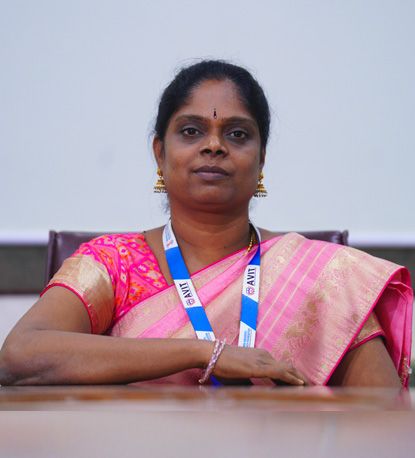
Programme Highlights
What You’ll Achieve with Us
Programme Outcome (POs)
| PO. No | Outcomes | Description |
| PO 1 | Engineering knowledge | Apply the knowledge of mathematics, science, engineering fundamentals, and an engineering specialisation to the solution of complex engineering problems. |
| PO 2 | Problem analysis | Identify, formulate, review research literature, and analyse complex engineering problems reaching substantiated conclusions using first principles of mathematics, natural sciences, and engineering sciences. |
| PO 3 | Design/development of solutions | Design solutions for complex engineering problems and design system components or processes that meet the specified needs with appropriate consideration for the public health and safety, and the cultural, societal, and environmental considerations. |
| PO 4 | Conduct investigations of complex problems | Use research-based knowledge and research methods including design of experiments, analysis and interpretation of data, and synthesis of the information to provide valid conclusions. |
| PO 5 | Modern tool usage | Create, select, and apply appropriate techniques, resources, and modern engineering and IT tools including prediction and modeling to complex engineering activities with an understanding of the limitations. |
| PO 6 | The engineer and society | Apply reasoning informed by the contextual knowledge to assess societal, health, safety, legal and cultural issues and the consequent responsibilities relevant to the professional engineering practice. |
| PO 7 | Environment and sustainability | Understand the impact of the professional engineering solutions in societal and environmental contexts, and demonstrate the knowledge of, and need for sustainable development. |
| PO 8 | Ethics | Apply ethical principles and commit to professional ethics and responsibilities and norms of the engineering practice. |
| PO 9 | Individual and team work | Function effectively as an individual, and as a member or leader in diverse teams, and in multidisciplinary settings. |
| PO 10 | Communication | Communicate effectively on complex engineering activities with the engineering community and with society at large, such as, being able to comprehend and write effective reports and design documentation, make effective presentations, and give and receive clear instructions. |
| PO 11 | Project management and finance | Demonstrate knowledge and understanding of the engineering and management principles and apply these to one’s own work, as a member and leader in a team, to manage projects and in multidisciplinary environments. |
| PO 12 | Life-long learning | Recognise the need for, and have the preparation and ability to engage in independent and life-long learning in the broadest context of technological change. |
Programme Specific Outcome (PSOs)
PSO1: Apply science, mathematics and engineering through differential and integral calculus, complex variables to solve electrical engineering problems.
PSO2: Demonstrate proficiency in use of software and hardware to be required to practice electrical engineering profession.
PSO3: Able to provide socially acceptable technical solution with the knowledge of ethical and management principles for sustainable developmen
Programme Educational Objectives (PEOs)
PEO1: To impart the basic science and mathematical foundation, as also the principles and technology advancements made in electrical and electronics engineering and allied fields.
PEO2: To induce the graduates to design Electrical, Electronics and Computing systems those are innovative and socially acceptable.
PEO3: To motivate the graduates to exhibit professionalism, ethics, communication skills, team work and application oriented research.
Board Of Studies
| S.No | Name & Designation | Particulars |
| 1 | Dr.G.Selvakumar, Principal, Aarupadai Veedu Institute of Technology, Paiyanoor. | Chair Person |
| 2 | Dr.R.Devarajan, Professor Department of EEE, VMKV Engineering College, Salem. | Member |
| 3 | Dr.L.Chitra, Professor and Head, Department of EEE, Aarupadai Veedu Institute of Technology, Paiyanoor. | Member |
| 4 | Dr.K.Boopathy, Associate Professor, Department of EEE, Aarupadai Veedu Institute of Technology, Paiyanoor. | Member |
| 5 | Dr.G.Ramakrishna Prabu, Associate Professor, Department of EEE, VMKV Engineering College, Salem. | Member |
| 6 | Mr.S.Prakash, Assistant Profesor (Gr-II), Department of EEE, Aarupadai Veedu Institute of Technology, Paiyanoor. | Member |
| 7 | Mr.R.Sathish, Assistant Professor, Department of EEE, VMKV Engineering College, Salem. | Member |
| 8 | Dr.R.Sarathi, Professor, Indian Institute of Technology, Madras. External Expert | External Expert |
| 9 | Dr.C.Christobher Asir Rajan, Professor & Head, Department of EEE, Pondicherry Engineering College, Pondicherry. | External Expert |
Faculty List
| Name | Designation |
| Dr. Selvakumar G | Principal |
| Dr. Chitra L | Professor & HoD |
| Dr. Boopathy K | Professor |
| Dr. Rajasekaran P | Associate Professor |
| Mr. Ramesh V | Associate Professor |
| Dr. Devabalaji | Associate Professor |
| Mr. Prakash S | Assistant Professor |
| Mr. Rattan Kumar V | Assistant Professor |
| Mrs. Poornima P | Assistant Professor |
| Mrs. Janani Sri D | Assistant Professor |
| Ms. Jensie Anita S | Assistant Professor |
| Mrs. Kiruthika Indumathi N | Assistant Professor |
| Mrs. Manjula T | Assistant Professor |
| Dr. Kavitha Kumari K S | Assistant Professor |
| Mrs. Suganthi J | Assistant Professor |
| Mrs. Nithya G | Assistant Professor |
| Ms. Amudha T | Assistant Professor |
| Ms. Jyoti | Assistant Professor |
| Dr. Ramya L | Assistant Professor |
| Ms. Geethi Peethambaran | Assistant Professor |
| Ms. Vanitha R | Assistant Professor |
Industry Partners
VEmerge+ Integrated Programmes Developed in Collaboration With Leading Industry Partners
Programmes Offered
Start Your Learning Journey
Curriculum
What you will Learn
Laboratories
State of the Art Laboratories
Take a 360° Virtual Tour of Electrical and Electronics Engineering Department
Explore our vibrant campus and discover where innovation, learning, and community thrive.
Clubs & Organizations
Join vibrant clubs to explore passions and build leadership
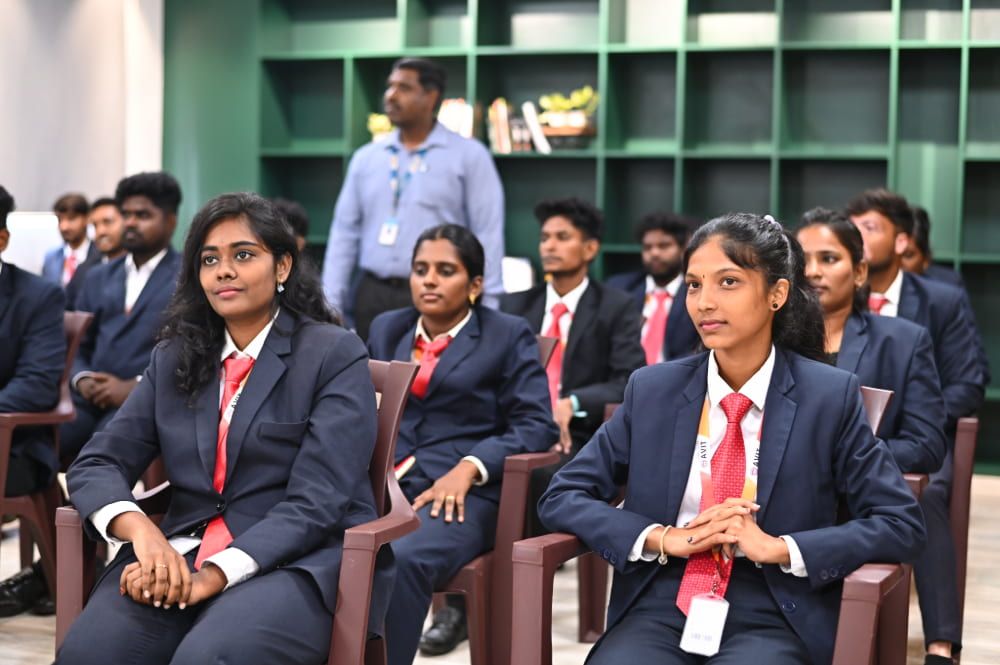
AI & Machine Learning Club
Explore the latest in AI, ML, and data science through workshops, coding challenges, and collaborative projects.
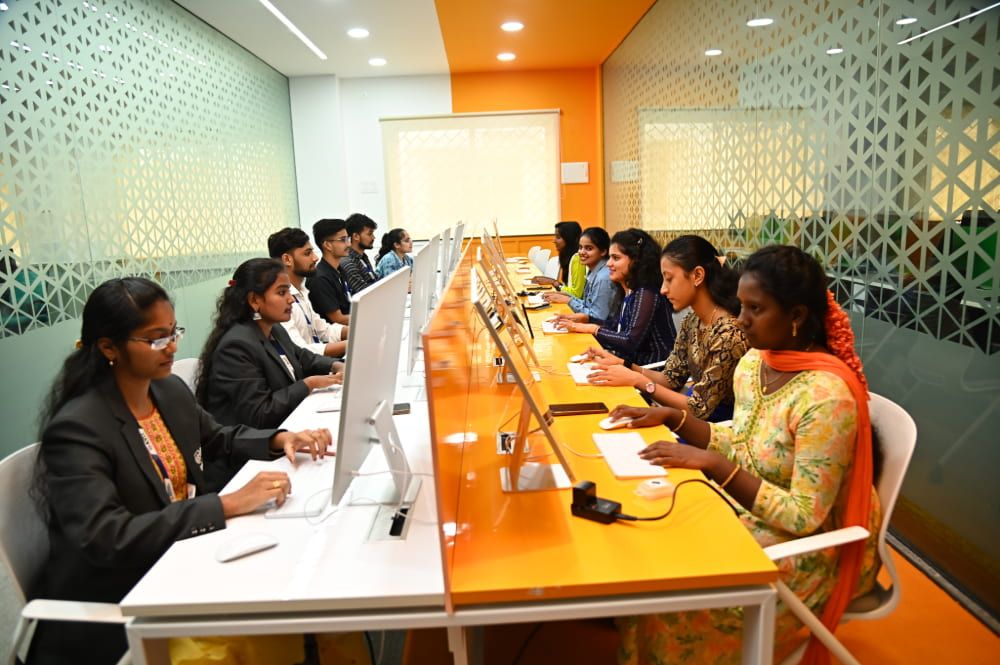
Coding Club
Sharpen your programming skills with peer-led coding sessions, hackathons, and competitions.
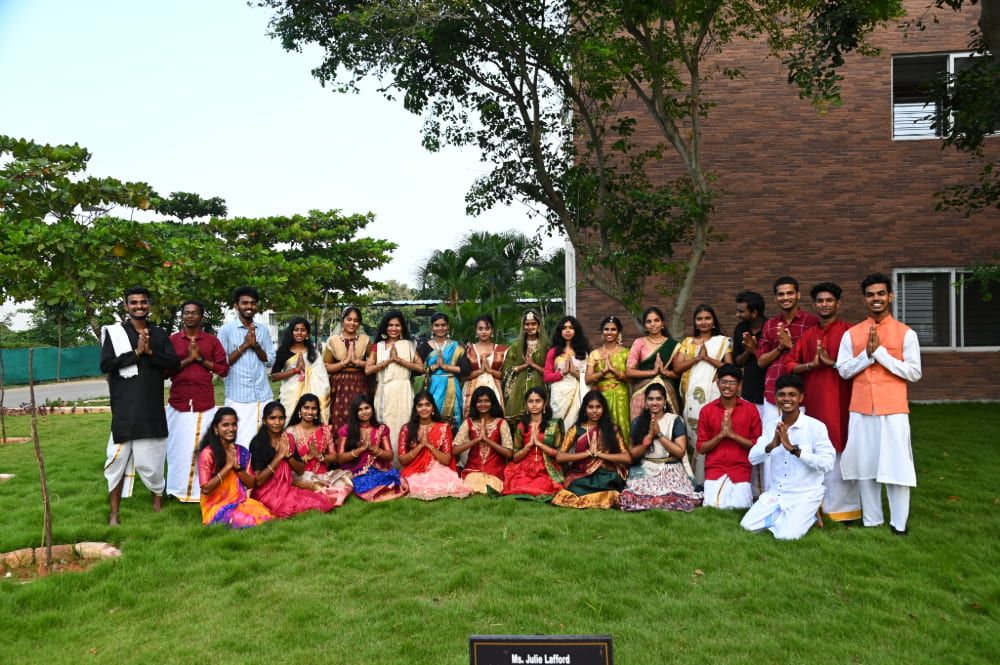
Innovation Cell
Turn your tech ideas into reality! IEC empowers students with mentorship, start-up guidance, and opportunities.
Competition & Awards
Where talent meets recognition
Our achievements reflect the dedication, talent and industry readiness of our faculty and students. The department proudly highlights accomplishments in key areas that showcase awards, academic success, research excellence, professional growth and industry exposure.
- Awards
- Faculty Achievements
- Student Achievements
- Internships & Trainings
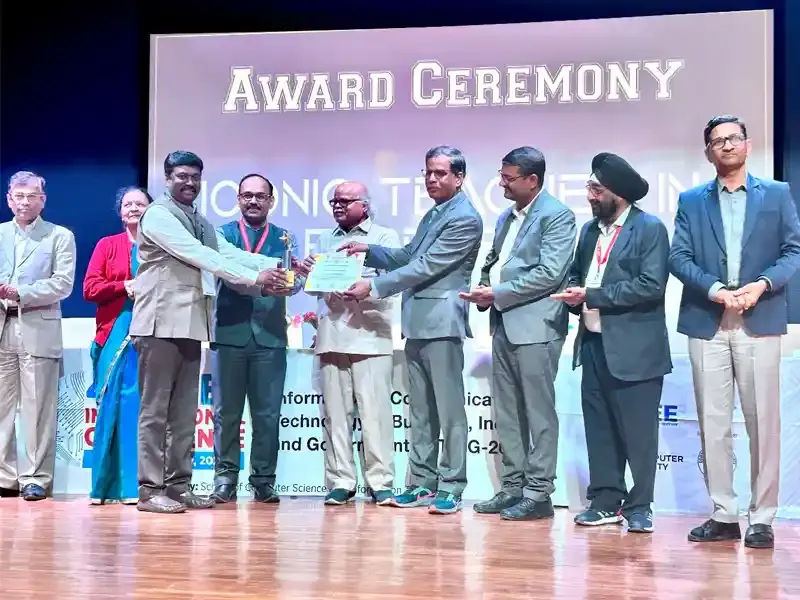
Powering Research
Centres of Excellence
Testimonials
Student Experiences. Real Outcomes.
Internships
Build your future with industry-integrated internship programmes
At AVIT, internships connect classroom learning with real-world industry exposure, offering students hands-on experience, practical skills, and a head start in their careers.
News & Events
What’s Happening in Electrical and Electronics Engineering Department

Alumni Guest Lecture on "Corporate Ethics: Building Trust in a Competitive World"
Date: 12/09/2025

Alumni Guest Lecture on “Scope of Engineers in Industrial Planning”
Date: 24/03/2025

Guest Lecture “Energy Storage Solutions for Renewable Integration”
Date: 13/08/2025

Workshop “Efficient Battery Cell Packaging: Methods for Modern Energy Systems”
Date: 27/07/2025

International conference on Sustainability Management of Advanced Renewable energy Technologies- ICSMART 2019
Date: 11/04/2025
Your Future Begins at AVIT College
Innovative programmes, expert faculty, and industry connections to guide your success
